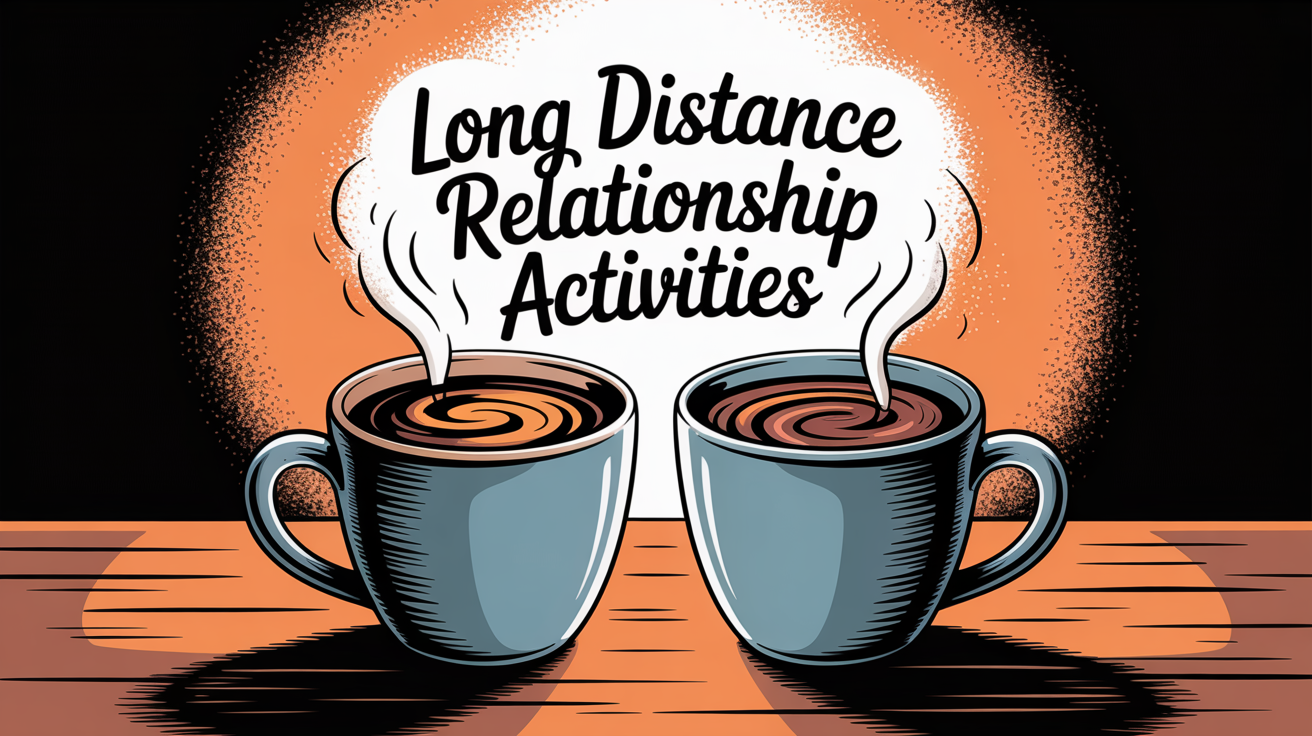
180+ Long Distance Relationship Activities That Actually Work
Everything you need to stay connected across distance: games, date ideas, communication strategies, money talks, and reunion planning. The ultimate LDR survival guide.
look. if you're here, you're probably in one of two situations:
situation a: you're in a long distance relationship and it's... fine?
you text every day. you call sometimes. but there's this weird feeling that you're both just going through the motions. like you're maintaining a relationship instead of actually being in one. the spark isn't gone exactly, but it's definitely not sparking the way it used to.
you're scrolling through couple content on instagram and everyone else seems so effortlessly close, meanwhile you're over here trying to remember if you actually talked about anything real today or if it was just "how was work" "good" "cool" "yeah."
situation b: you're about to start long distance and you're terrified.
everyone keeps telling you "communication is key!" and "trust each other!" which is about as helpful as someone telling you to "just be yourself" when you're nervous.
like yeah, obviously, but how? what does that actually look like on a random tuesday when you're both tired and there's nothing new to talk about and you're starting to wonder if this was a huge mistake?
here's what literally nobody tells you about long distance relationships: they're not just regular relationships with a distance problem. they're an entirely different species of relationship that requires a completely different skill set.
it's like the difference between cooking in your kitchen versus cooking over a campfire. same goal, completely different techniques, and what worked at home definitely won't work here.
you can't just "try harder" at the things that worked when you were together. you need to learn a new language of connection. you need to get weird and creative and intentional in ways that would feel completely extra if you lived in the same city. you need to build rituals. you need to find ways to create shared experiences when you're living completely separate daily lives. you need to make effort feel effortless, which is its own kind of magic trick.
and honestly? most couples don't figure this out.
they just keep doing the same stuff (daily "how was your day" texts, weekly facetime calls where you stare at each other in silence and one person is on their phone, occasional "i miss you" spirals) until one day someone says "i feel like we're drifting apart" and nobody's surprised.
the relationship doesn't explode. it just... fades. slowly. until you're basically just two people who text out of habit.
but some couples do figure it out.
they find ways to feel genuinely close despite the distance. they build connection muscles that most regular couples never develop because proximity does the heavy lifting for them. and weirdly enough, some of them come out of long distance stronger than before.
they learn to communicate better. they learn to be intentional. they learn to appreciate time together instead of taking it for granted. they build something that can actually withstand real life challenges because if your relationship can survive distance, it can survive most things.
the difference between the couples who make it and the couples who don't isn't communication quantity. it's about quality of connection.
it's about finding activities, rituals, and ways of being together that actually make you feel together, not just "in contact." it's about creating moments that feel real and alive instead of just checking the "we talked today" box.
this is everything that actually works. not generic advice. actual, specific, these-made-tuesday-less-depressing activities. over 180 of them, explained in detail, organized in a way that actually makes sense for real life. some of them will feel perfect for you. some will feel stupid. that's fine. take what works. ignore what doesn't. build your own system.
let's get into it.
part 1: the foundation (or: why your current routine isn't working)
before we get to activities, let's talk about why most long distance relationships feel hollow even when you're "doing everything right."
you text all day. you call at night. you say "i love you" and "i miss you" a lot. you send memes. you share your location. you're doing all the things people told you to do. but somehow it still feels like you're drifting. the conversations feel flat. the calls feel obligatory. you're going through the motions of being in a relationship but you're not actually feeling in a relationship. why?
because maintenance communication ≠ actual connection.

maintenance communication is functional. it's updates. it's logistics. it's the relationship equivalent of a status report. "how was work" "fine, how was yours" "fine" "what are you doing tonight" "nothing much" "okay" "yeah" "talk later?" "sure" "love you" "love you too." you just exchanged words but nothing actually happened. you're checking in, but you're not really... connecting. you're reporting to each other about your separate lives instead of creating a shared life.
think about it this way: when you lived in the same place, connection happened naturally through proximity. you didn't have to plan connection, it just occurred. you'd be sitting on the couch together, not even talking, just existing in the same space, and somehow that felt intimate. you'd go grocery shopping together and argue about which pasta sauce to buy and that was connection. you'd cook dinner while they did dishes and talk about random stuff and that was connection.
but now? now you have to create all of that intentionally. and most people don't know how to do that. they just keep texting and calling and hoping it'll feel like being together. but it doesn't. because texting "thinking about you" doesn't recreate the feeling of them walking up behind you and hugging you while you're cooking. a video call doesn't recreate laying in bed together scrolling your phones. saying "i miss you" doesn't fill the gap left by all the small mundane moments you're not sharing.
actual connection happens when:
you share something vulnerable and they really hear you
you laugh together about something ridiculous until you're both crying
you do something together, even virtually, where you're focused on the same thing
you feel seen or understood in a specific way that makes you think "they get me"
you experience something new together and now have a shared reference point
you help each other through something hard and feel like a team
you dream about the future together and it feels tangible
you're surprised by something about each other and realize you're still learning
you have an inside joke that makes you both laugh weeks later
you support them through something they care about
you make them feel chosen, not just contacted
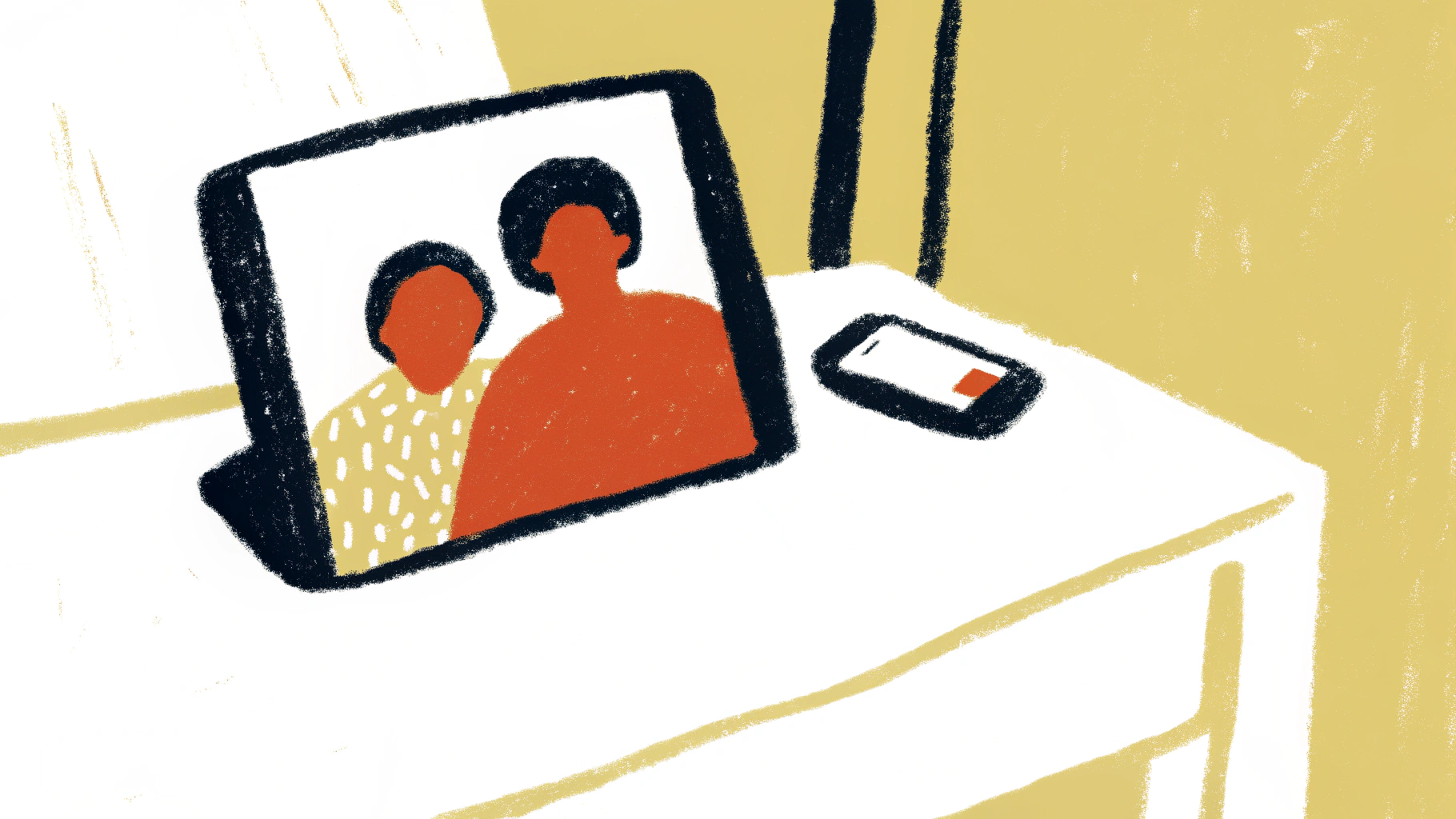
notice how none of those things happen automatically through regular texting? they require context. they require intention. they require actual activities and rituals and moments.
this is why activities matter. not because they're fun (though they are). not because relationship experts say so. but because they create contexts for real connection instead of just maintaining contact. they give you something to do together that isn't just reporting on your separate lives. they create shared experiences. they build memories. they make you feel like you're still building something together instead of just waiting until you can be together.
activities are the scaffolding that holds up a long distance relationship. without them, you just have two people texting each other about their separate lives. with them, you have an actual relationship that happens to take place across distance.
okay, now let's actually get into the stuff that works.
part 2: the daily micro-habits (1-5 minute things that compound into everything)
grand romantic gestures are great. surprise visits, elaborate care packages, handwritten letters with pressed flowers. those are all amazing. but your relationship lives or dies on what you do daily. on the tiny, unglamorous, barely-takes-any-time things that compound over weeks and months into either deep connection or slow drift.
think about physical fitness. one intense workout doesn't make you fit. doing ten pushups every single day for a year will transform your body. relationships work the same way. consistency beats intensity every single time.
these are tiny things that take barely any time but create what relationship researchers call "emotional momentum." each small action builds on the last one. each day you show up makes showing up tomorrow easier. each moment of connection makes the next one feel more natural. you're not trying to force something. you're building a rhythm.
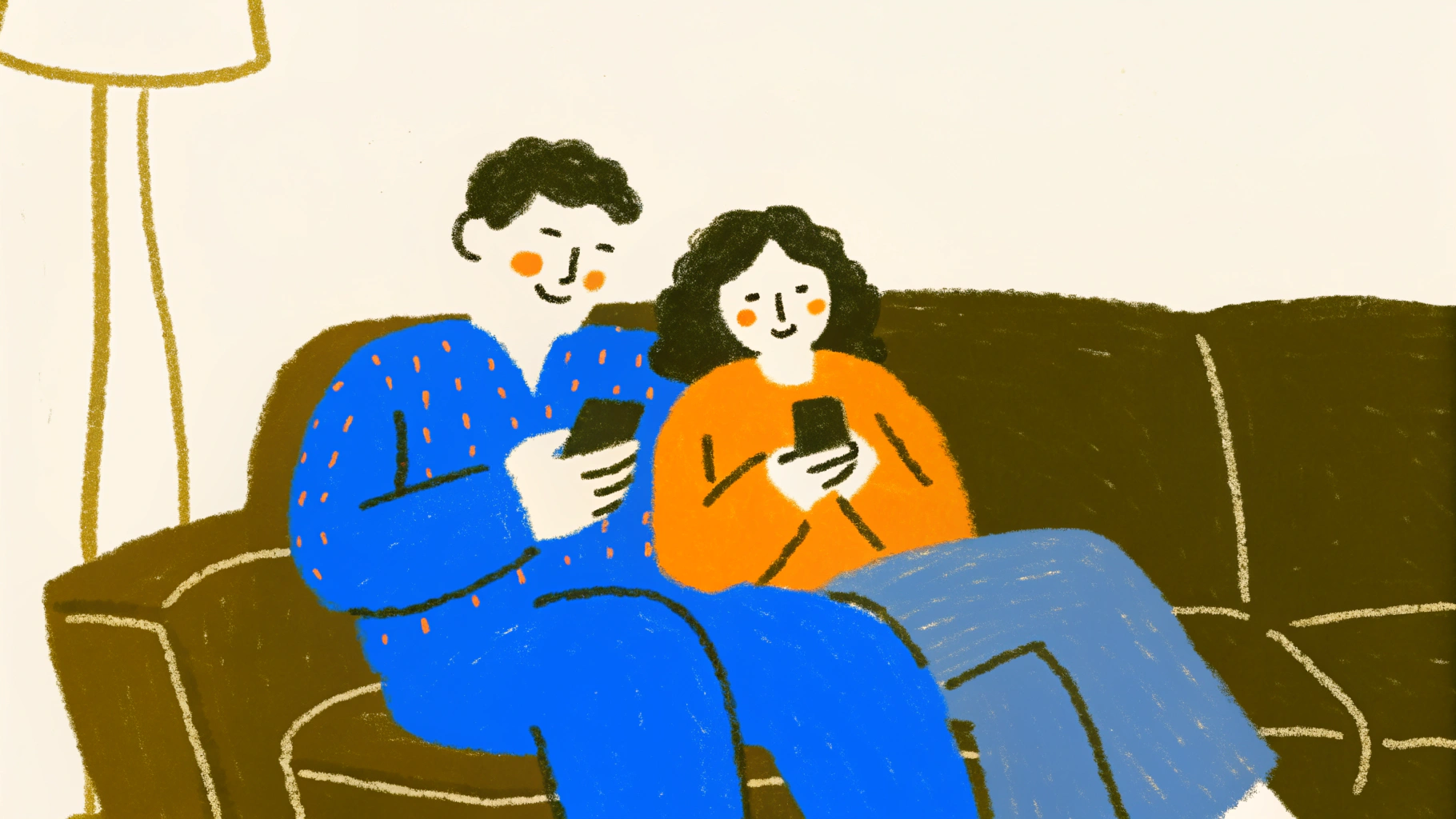
the morning anchor (how you start the day together)
mornings set the tone for everything. when you wake up alone in a long distance relationship, there's this split second where you're disoriented. where you forget they're not there. where you feel the absence more acutely than any other time of day. morning rituals combat that. they make waking up feel less lonely.
1. send the first thought that pops into your head when you wake up
not "good morning." not "hope you have a good day." not a cute gif. the actual first random thought that crosses your mind when you open your eyes.
"just woke up and immediately thought about that time you tried to parallel park and hit the curb three times and then blamed the car"
"dreamed you were a talking lamp and i was trying to have a serious conversation with you about politics and you kept just flickering"
"why do we call them buildings if they're already built. this just occurred to me and now i'm unreasonably mad about it"
"woke up craving those terrible nachos from that place we went to that one time"
sounds stupid right? but here's why it works: it's unfiltered. it's not performed. it's your actual brain, fresh from sleep, thinking about them. that's intimate in a way that a generic "good morning beautiful ❤️" just isn't. it lets them into your real inner monologue, not your curated relationship persona.
plus, it's surprising. they never know what weird thing they're going to get. it becomes something to look forward to. "what absolutely unhinged thing are they going to text me today?"
2. voice note instead of text (at least once every morning)
text is great. text is easy. but hearing their actual voice does something different to your brain. there's warmth in it. inflection. personality. you can hear if they're tired or energized or stressed. you can hear them smile.
doesn't have to be long. doesn't have to be profound. "hey i'm walking to work and saw this dog that looked exactly like that one from [inside joke] and now i'm laughing like an idiot in public" is perfect.
or literally just "good morning, i love you, your voice is the first thing i wanted to hear today" in your actual sleepy voice. that's it. 15 seconds. but the emotional impact of hearing their voice first thing is huge.
some people find this intimidating at first because voice notes feel more vulnerable than texts. you can't edit them. you can't curate them. your voice sounds weird to you. but that's exactly why they work. the vulnerability is the point.
3. photo of your view right now (whatever it is, no curation)
your desk. your breakfast. the weird stain on your ceiling you just noticed. your unmade bed. the line at the coffee shop. the sunrise from your window. your face, unwashed and half-asleep.
not instagram-worthy photos. real ones. the boring, mundane, this-is-my-actual-life ones.
here's why this matters: over time this builds a visual map of each other's daily life. you start to recognize their spaces. their routines. their world. you know what their kitchen looks like in morning light. you know what they look like before they've had coffee. you know the route they take to work. you know the weather in their city right now.
when you finally visit them (or move there), nothing feels totally foreign because you've been seeing pieces of their world all along. their neighborhood isn't abstract. their apartment isn't a mystery. you've seen it hundreds of times.
there's an app called candle that makes this stupidly easy. every day, it sends you both a random photo prompt at the same time. both people take a photo of whatever the prompt is (could be "something red" or "your view right now" or "something that made you smile") and you share them just with each other. it's like bereal but private and designed specifically for staying connected. over time you build this whole archive of daily life snapshots without even thinking about it. takes literally 30 seconds. but those photos become this visual diary of your time apart.

4. the "made me think of you" dump (send it immediately, don't wait)
throughout the day, whenever something reminds you of them, screenshot it or send it immediately. right when it happens. not later. not "i'll wait till we talk tonight." now.
a meme that has their exact sense of humor
a song lyric that reminds you of them
something someone said that they would find hilarious
a reddit post about something they care about
a random memory that just surfaced
a dog that looks like their childhood dog
literally anything
the frequency matters more than the content. anyone can send one "thinking of you" text. but when they get four random things throughout the day, every day, it's proof you're thinking about them constantly. not just during designated relationship time. all day. randomly. unpredictably.
it also gives them this window into your brain. they start to understand what triggers memories of them. what you find funny. what you notice. how your mind works. that's intimacy.
5. ask one specific question (not "how was your day")
"how was your day" is the death of conversation in long distance relationships. it's too broad. it's too easy to answer with "fine." it requires too much mental energy to figure out what to share. it's the conversational equivalent of "tell me about yourself" in a job interview. technically a question, functionally useless.
better questions are specific. they give them something concrete to talk about. they show you're paying attention to their life. they can't be answered with one word.
try these:
what's something that happened today that i wouldn't guess?
what did you have for lunch and was it good or are you still hungry?
on a scale of 1-10 how annoying were people today?
what's one thing you're actually looking forward to tomorrow?
did anything surprise you today? good or bad?
what's your current brain spiral about?
who was the most interesting person you interacted with today?
what's something you saw today that you wanted to show me?
if you could redo one hour of today, which would it be and why?
specificity forces actual thought. it gives them a hook to grab onto. it leads to real conversation instead of just status updates.
6. use an app designed for daily connection
look, you can piece together all these habits yourself. send voice notes via text. ask questions manually. share photos through messages. that works.
but there's something useful about having a system that prompts you. something that makes daily connection automatic instead of something you have to remember to do.
that's the whole philosophy behind candle. it's designed specifically for this: staying connected daily in just a few minutes, without it feeling like work. every day you get one random challenge or question or photo prompt. you both respond. you see what they said. you talk about it. takes a minute or two. but you're doing it every single day, which is what matters.
the app has over 150,000 couples using it because it solves the "what do we even talk about" problem. you're not staring at each other on facetime in silence wondering what to say. you have a prompt. a starting point. something to react to together.
it's like duolingo for relationships. you're building a daily habit of connection through tiny, manageable pieces instead of trying to force deep conversation every single day.
the evening anchor (how you end the day together)
if morning rituals combat the loneliness of waking up alone, evening rituals combat the loneliness of going to bed alone. this is when you most feel the absence. when you're tired and would normally just curl up next to them. when you want comfort and presence, not necessarily conversation.
7. voice/video call while doing literally nothing together
this is the most underrated long distance activity. the goal isn't conversation. the goal isn't a date. the goal is presence.
keep video on while you:
cook dinner (even if you're making completely different things)
do dishes
fold laundry
work on separate stuff at your respective desks
scroll your phones
read
just exist
you don't have to talk the whole time. comfortable silence is a thing. you can make occasional comments. "this pot is taking forever to boil." "just saw the funniest tiktok." "my back hurts." "same."
but mostly you're just... there together. you look up and they're there on your screen. they're part of your space. you can hear them moving around. you can see what they're wearing. you're not performing for each other. you're just coexisting.
this recreates what couples who live together have naturally: proximity without pressure. parallel play. being alone together. it's one of the things people miss most about being physically together and somehow nobody talks about it.
some couples keep video running for hours like this. fall asleep on facetime. wake up and the call is still going. others do it for 30 minutes while making dinner. whatever works.

8. share your day in six words (forces you to actually think)
instead of the full play-by-play recap that takes forever and somehow conveys nothing, sum up your day in exactly six words.
"presentation bombed, got drunk, feel weird""accidentally matched with coworker on hinge""mom called, existential crisis, ordered pizza""great until 3pm then total disaster""weirdly productive, slightly worried, very tired"
the constraint forces you to actually think about what mattered. what the emotional arc was. what the story of your day is. then you can ask follow-up questions about whichever part sounds most interesting.
"wait go back to the existential crisis part""okay i need the full story about your coworker"
turns recap into conversation instead of just information dump.
9. exchange tomorrow's rough plan (not scheduling, just shape)
not detailed scheduling. not "9:15 meeting then 10:30 dentist then lunch at 12:45." just the rough shape of the day.
"9am gym probably regret it, meetings till 3, need to grocery shop, should be free after dinner?""morning's chill, lunch with sarah, late afternoon calls, evening i'm all yours"
helps you know when to send encouragement ("good luck with those meetings") or when they'll likely be free. makes you feel included in each other's logistics, which is weirdly intimate. you know the rhythm of their days. you can picture where they are and what they're doing at different times.
also prevents the "are you free?" "no" "when?" "idk" "okay" dance that happens constantly in long distance.
10. the last thing you say before sleeping (make it specific)
not just "goodnight i love you." something specific about them or the day.
"thank you for talking me down from my spiral about [specific thing]""you're going to crush that presentation tomorrow and i'm proud of you""i really liked hearing about [specific thing they told you earlier]""can't wait to [specific future plan] with you""you made my day better by [specific action]"
specificity is what creates emotional impact. generic affection is nice. specific affection hits different. it proves you were actually listening. actually paying attention. actually present.
the random throughout-the-day stuff (unpredictable connection)
these don't happen at set times. they happen whenever. that's what makes them special. they're surprises. proof that you're thinking about them at random moments, not just during scheduled relationship time.
11. spotify/apple music shared playlist that you both add to constantly
create a playlist called "songs for us" or "thinking of you" or whatever. both people can add to it. add songs constantly. whenever you hear something that reminds you of them. whenever you discover something new you want them to hear. whenever a song matches your current mood and you want them to know.
songs that:
remind you of them specifically
have lyrics that say what you can't
you want them to hear
match your current emotional state
are inside jokes
make you think about the future
would be perfect for the car ride when you finally see them
are just objectively good and you want to share
then you both listen to what the other person added. you get insight into their emotional state. their musical taste. what they're thinking about. what reminds them of you.
some couples have multiple shared playlists for different moods. "hype songs." "sad boy hours." "sexy time." "songs that make me think of you." whatever works.

12. surprise food delivery when you know they're struggling
pay attention to their life. if you know they have a huge presentation tuesday, send their favorite coffee monday morning with a note. if they text "too exhausted to cook," ubereats them dinner. if they're sick, send soup. if they're celebrating something, send their favorite dessert.
the surprise matters more than the expense. it's not the food. it's the "i was paying attention to your life and wanted to help" thing.
doordash, ubereats, instacart, whatever. it's all easy. you don't even need to ask their address if you've sent them stuff before. you can schedule it. you can add special instructions ("surprise from their partner, please include napkins").
they check their phone and see "your delivery is arriving in 15 minutes." they didn't order anything. they're confused. then they realize you did and suddenly their whole day is different.
13. countdown timer on both your home screens
sounds cheesy. works anyway.
apps like candle have widgets that show exactly how many days until you see each other. stick it on your home screen. both of you.
watching that number get smaller is genuinely motivating on hard days. "only 23 more days." "three weeks from today." "single digits now."
you're both counting down to the same thing. you're both watching that number change. you both see it every time you unlock your phone, which is like 100 times a day. it's a constant reminder that the separation is temporary. that there's a specific date when this ends.
also gives you a shared reference point. you can text "17 days" with a bunch of exclamation points and they know exactly what you mean.
14. shared notes document for random thoughts
create a google doc or apple notes document that you both can edit anytime.
dump random stuff:
inside jokes as they happen
things you want to remember to tell them
funny quotes from your day
plans for next visit
random 3am thoughts that don't warrant a full text
grocery list for when you finally live together
bucket list items
"remember when" stories
observations about each other
literally whatever
it becomes this weird stream-of-consciousness shared brain space. you open it and see they added something. you add something back. it's like leaving notes for each other on the fridge except digital and ongoing forever.
some couples have whole sections. "funny stuff." "plans." "deep thoughts." "random observations." whatever organizational system makes sense.
15. react to their instagram stories EVERY TIME
if they post a story, respond to it. every single time. even if it's just "lol" or a fire emoji or "babe no" or "okay but why."
showing up consistently on the small stuff builds security. it proves you're paying attention. it proves their content matters to you even when it's mundane.
also it keeps you visible in their phone. they're constantly seeing messages from you. you're woven into their daily experience, not just someone they talk to once at night.
16. send memes with zero context
just absolutely unhinged memes at random times throughout the day. memes that match your sense of humor. memes they'll find funny. memes that make no sense without your whole context.
if they get it immediately, that's its own form of intimacy. you have such aligned humor that you don't even need to explain. if they don't get it, they ask, and you get to explain your weird brain, which is also intimate.
the randomness matters. getting a meme at 2pm on wednesday for no reason makes people smile.
17. use that thumb kiss feature (it's dorky but it works)
okay look. candle has this feature where you can tap your phone screen at the same time and both phones vibrate. it's called thumb kiss. it's objectively dorky as hell.
but when you're having a hard day and suddenly your phone buzzes and you know it's them just saying "hey i'm here" without having to type anything... it actually hits different.
it's faster than a text. it's gentler than a call. it's just a little "i'm thinking about you right now" signal. a virtual squeeze of their hand. takes literally one second to send. but the feeling of getting one when you need it is weirdly powerful.
couples use it for different things. goodnight. good morning. good luck. i love you. just because. the meaning is whatever you make it. but having that instant way to say "i'm here" without words is useful.

18. voice message reactions to things they told you earlier
they mentioned a big meeting. send a voice note after asking how it went.they were stressed about something. follow up later with encouragement.they were excited about something. ask them how it went.
showing you remembered and cared enough to follow up is huge. it's easy to say "good luck with your meeting" in the moment. following up after shows you were actually thinking about it throughout the day.
voice notes feel more personal than texts for this. you can hear the genuine interest in someone's voice.
19. surprise video messages for no reason
just record your face saying something nice. send it randomly.
"hi i love you and you're doing great and this is your reminder that you're hot and smart and i'm lucky"
"hey i was just thinking about that time we [specific memory] and it made me smile"
"missing your face today, here's mine"
they can watch it whenever. replay it when they need it. save it for bad days.
20. start using a shared calendar
add your stuff. they add theirs. you can see when they're busy versus free.
makes scheduling easier obviously. but also makes you feel involved in each other's actual life rhythm. you know when they have that doctor's appointment. when their friend's birthday is. when they're traveling. when they're swamped with work.
you're not managing separate lives. you have visibility into each other's schedules. you're planning around each other naturally.
google calendar. apple calendar. whatever. just share it.
part 3: the weekly anchors (scheduled connection that actually matters)
daily stuff prevents drift. weekly stuff creates experiences. these are the things you actually look forward to.
designated date night (take this seriously)
21. pick one night a week that's non-negotiable date night
treat it like a real date. if you wouldn't cancel an in-person date for [random thing], don't cancel this.
22. dress up for video dates
even a little bit. even if it's just a nice shirt. effort signals "you're worth it."
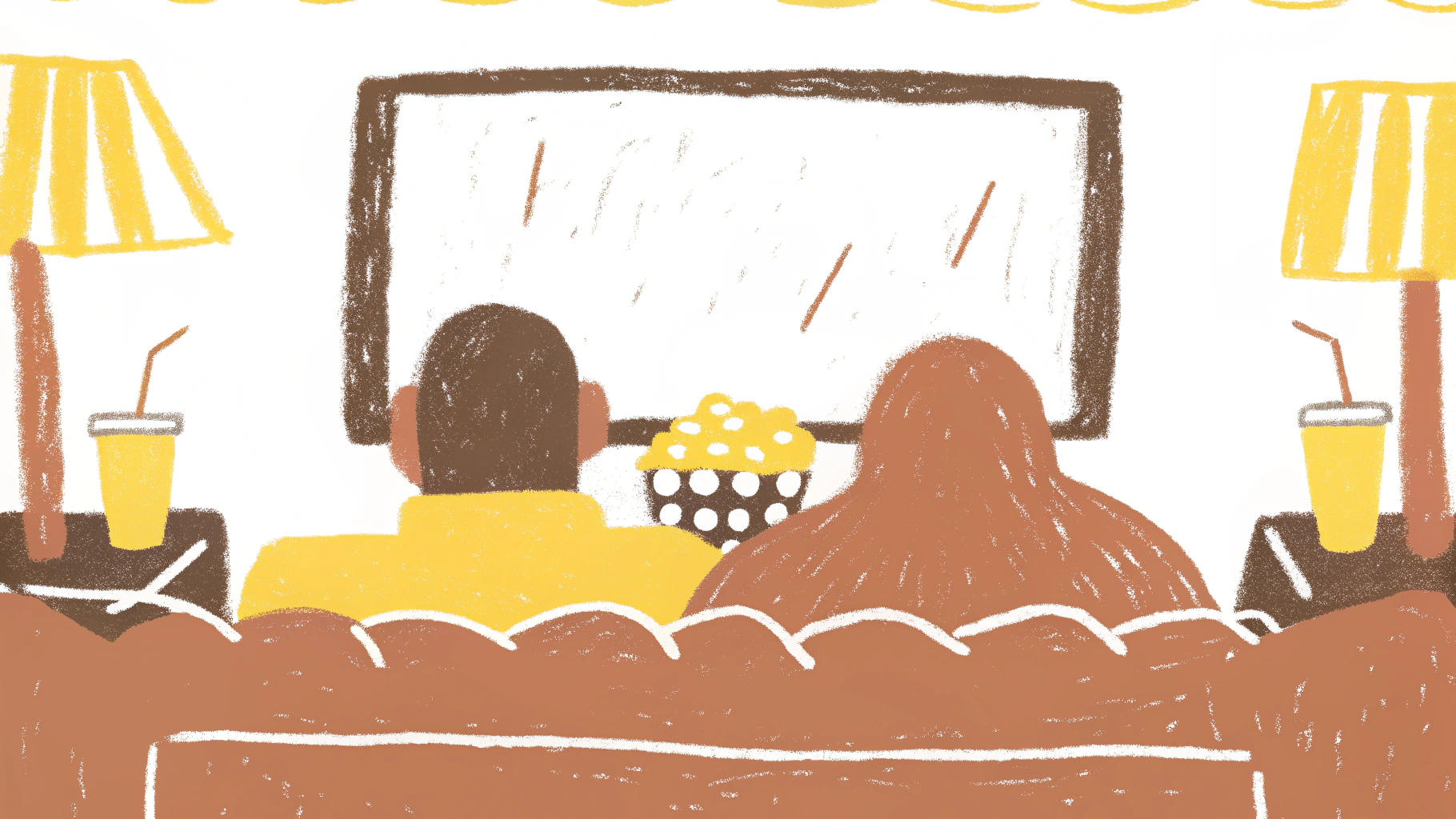
23. do the same thing at the same time (dinner, movie, activity)
cooking together virtually:
pick a recipe
grocery shop for the same ingredients
facetime while cooking
eat "together" at your respective tables with video on
talk about how yours turned out vs theirs
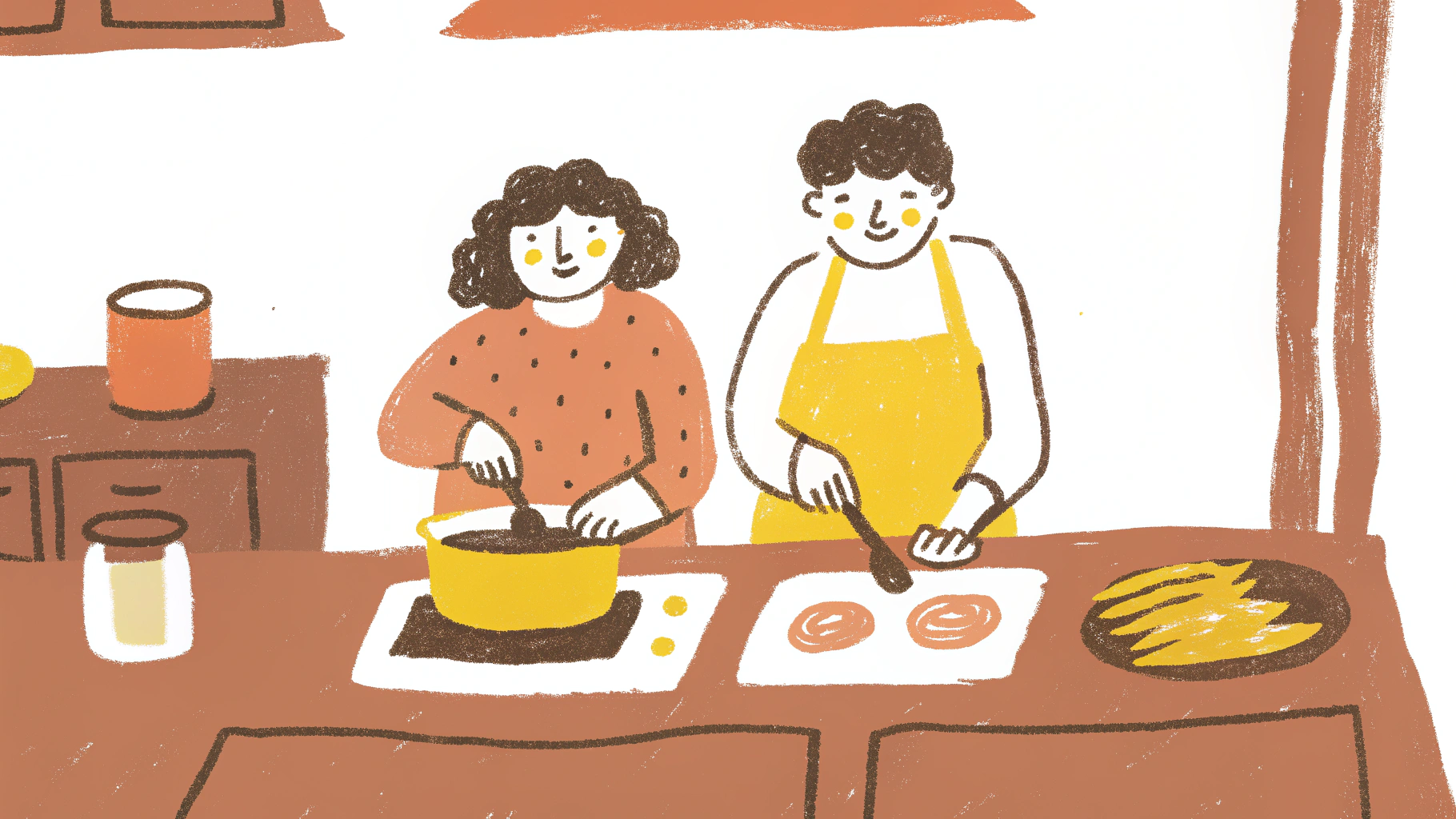
24. virtual dinner themes
italian night (pasta + opera music)
taco tuesday (duh)
"trying to recreate [restaurant we went to]"
breakfast for dinner
"whatever we can make with 5 ingredients"
sushi night (attempt to make rolls, probably fail)
25. order from the same chain restaurant (different locations)
if you're both in the US, both order chipotle. or subway. or whatever chain exists in both places.
compare your orders. "how much guac did they actually give you" "why does yours look bigger" "i asked for extra cheese and this is criminal."
eat together on video. it creates this weird feeling of doing the same thing at the same time even though you're hundreds of miles apart. you're eating the same food. from the same company. you're connected through capitalism which is stupid and perfect.
if you're international and don't have the same chains, pick the same TYPE of food. both get pizza. both get chinese. both get burgers. close enough.
26. surprise each other with delivery (for date night)
don't tell them what you ordered them. just send their favorite food to arrive right before your date. they send you something too.
then eat together on video. surprise meal date. reveals what you think they'd like. shows you were thinking about them earlier in the day when you ordered.
also removes the "i'm too tired to cook" excuse. food just appears. date night happens.
movie/show nights (but make them actually feel like dates)
watching something together is easy. watching something together in a way that feels like a date requires a little more intention.
27. use teleparty/netflix party to sync playback exactly:
there are browser extensions (teleparty for netflix, amazon watch party for prime, etc) that sync playback perfectly. you're watching at the exact same moment. when you pause, they pause. when you hit play, they hit play.
this means you can see each other's reactions in real-time. you're both experiencing plot twists simultaneously. you're not trying to coordinate "okay i'm at 34:52, where are you?"
install the extension. start the party. send them the link. you're now in a private viewing room together.
28. create the full movie theater experience:
don't just plop down and hit play. make it an experience.
both make popcorn (race to see who gets it done first without burning)
get your favorite movie snacks ready
dim all your lights
light a candle for ambiance
put your phone on do not disturb (except for the call obviously)
have your drinks ready
get cozy in blankets
maybe even dress up slightly
have video on for the first few minutes to say hi and set up. chat about what you're about to watch. build anticipation.
then during the movie you can keep video on (see each other's reactions) or turn it off and just text reactions. personal preference. some couples like seeing each other. some find it distracting.

29. pick a whole series to watch together (and ONLY watch it together)
this is crucial. whatever show you pick, you can ONLY watch it when you're both together. no cheating. no "i'll just watch one more episode ahead." it's YOUR show. it's special because you're experiencing it together.
makes it feel important. builds anticipation through the week. "only two days until we watch the next episode." gives you something to look forward to constantly.
creates inside jokes. "remember when [character] did that insane thing." you're building a shared reference library.
when the show ends, pick a new one immediately. always have a show that's yours.

good options: anything with 3+ seasons. breaking bad. the office. succession. severance. any show with enough episodes that you'll be watching together for months.
30. intentionally watch terrible movies and roast them together:
bad shark movies. sharknado type stuff. terrible hallmark christmas movies. the worst rom coms you can find. those netflix movies that got like 12% on rotten tomatoes. anything that's clearly going to be hilariously bad.
the movie isn't the entertainment. your commentary is the entertainment.
make fun of the plot holes. point out continuity errors. give voices to the characters. predict the terrible dialogue before it happens. count cliches. play bingo with tropes.
"oh here comes the misunderstanding that could be resolved with one sentence""called it. knew someone would run through an airport""is that the same establishing shot from earlier?"
laughing together at something objectively bad is bonding. you're on the same team against this movie. shared superiority is a love language.
31. watch each other's comfort shows (even if you think you'll hate them)
they show you their childhood favorite show. you show them yours.
watching someone's comfort media teaches you about them. what they found funny as a kid. what they were like before you knew them. what shaped their sense of humor and worldview.
plus it's vulnerable. "here's this thing i love that you might think is stupid" requires trust.
actually engage with it. don't just suffer through it ironically. try to see why they loved it. ask questions. let them explain the lore and why certain episodes matter. appreciate their nostalgia even if the show is objectively terrible now.
"this is the episode that made me want to be [profession]""this joke hit different when i was 12""i used to watch this with my dad"
you're accessing their origin story through media.
32. documentary nights (learn something together)
pick a documentary neither of you have seen. nature docs. true crime. historical. scientific. art. whatever you're both interested in.
watch it together. pause to discuss theories. get into friendly debates about whether the person was guilty or not. look up additional information mid-watching. go down wikipedia rabbit holes.
"wait but that doesn't make sense because...""okay but what about...""i'm looking it up right now..."
you're learning together. building shared knowledge. discovering things simultaneously. becoming slightly smarter as a unit.
good sources: netflix docs. criterion channel. youtube documentaries. skillshare. masterclass.
33. youtube deep dive nights:
pick an extremely specific topic. "history of the roman empire." "how computers work." "complete deep dive on [true crime case]." "every single thing about [historical event]."
watch like 5-10 videos about it in a row. different perspectives. different channels. really immerse yourselves in learning about this one thing.
become temporary experts on something completely random.
next week you'll have inside jokes about it. you both know way too much about [extremely specific topic] for no reason. you're the only two people at parties who care about [obscure thing].
34. binge-watch reality TV and pick sides:
the bachelor. love island. selling sunset. married at first sight. love is blind. whatever trash TV you both secretly (or openly) love.
pick your favorites. argue about who's the villain. predict who gets eliminated. analyze relationship dynamics. get way too emotionally invested in strangers' drama.
"no but did you see how she LOOKED at him""okay but he's playing a game clearly""if they pick [person] i'm done with this show""calling it now, those two end up together"
bonding over garbage television is completely valid and surprisingly fun. it's low-stakes. it's entertaining. it gives you so much to talk about.
35. reaction video sessions:
find videos of people reacting to things you love. watch them together. react to the reactions.
"first time hearing [song you love]" videos. "therapist analyzes [TV show]." "expert reacts to [movie about their field]." "lawyer reacts to [legal drama]."
it's meta entertainment. watching other people discover things you already love lets you experience it fresh again through their eyes.
"wait until they get to the good part""see THAT'S what i meant about...""okay their reaction is better than mine was"
36. watch live events together:
award shows. sports games. esports tournaments. live concerts streaming. product launches if you're nerds. political debates if you hate yourselves.
anything that's happening at a specific time that you both care about even a little. watch it together. comment in real time.
"did they just..." "YES" "okay but" "I KNOW RIGHT."
feels like you're experiencing something cultural together. like you're both part of the same moment even though you're apart.
37. make a movie bracket and compete:
pick a genre or theme. "best 90s movies." "best horror films." "best john williams scores." whatever.
make a bracket of 8 or 16 movies. watch one each week. both vote on which was better. winner moves to next round.
takes months. gives you ongoing activity. creates debates and conversations.
by the end you've watched 15 movies together and you've crowned an objective champion through your very scientific process.
38. create a "we need to talk about this" show list:
shows that require discussion. black mirror episodes. the leftovers. severance. twin peaks. anything mind-bending or philosophical or deeply weird.
watch them specifically because you know you'll need to spend an hour afterward talking about what it all meant.
"okay but WHAT was that ending""my theory is...""no that doesn't explain..."
the show is just foreplay for the conversation.
39. watch the same thing at different times and compare notes:
busy schedules? time zones impossible? watch the episode or movie separately. then hop on call immediately after to discuss.
"okay i just finished episode 4" "OKAY SO" and you're off.
not quite as fun as watching together in real-time but still creates shared experience. still gives you something to talk about. still bonds you through media.
40. drunk/tipsy watch party for bad movies:
both get drinks of choice. watch something terrible. drink every time [predictable thing] happens.
"drink when someone says the movie title""drink when there's a training montage""drink when the love interest is mad for no reason""drink when convenient timing saves the day"
tipsy commentary is even funnier than sober commentary. you're both silly. you're laughing at everything. the movie is unwatchable but you're having the time of your life.
41. create a shared letterboxd account:
rate movies together. review them together. keep a log of everything you've watched.
years later you can scroll back and remember "oh we watched that during [time period]."
also helps you figure out what to watch. "what did we give 4 stars to? let's find something similar."
42. watch old home videos together:
if you have childhood videos, show them. birthdays. holidays. random family footage.
"this is me at 7""oh my god you were so cute""that's my childhood bedroom""wait is that your DAD?"
you're seeing them as a kid. understanding where they came from. meeting their younger self.
incredibly intimate. surprisingly emotional.
the time zone nightmare (and how to actually survive it)
okay real talk: time zones will absolutely try to murder your relationship. if one of you is in new york and the other is in tokyo, you're living 13 hours apart. your morning is their night. your weekend is their weekday. you're basically dating someone who exists in a completely different timeline.
this is the thing nobody tells you until you're in it: one of you will always be sacrificing. always. every single call requires someone to stay up way too late or wake up way too early. every conversation happens during someone's inconvenient time. there's no magical perfect window where you're both fresh and energized and free.
some couples break up over this. "the time difference is just too hard" becomes the official reason but really it's "we couldn't figure out the logistics" or "i resented always being the one staying up late."
but some couples make it work anyway. they figure out systems. they get creative. they accept that it sucks and build around it.

here's how.
43. map out your "overlap windows" in painful detail:
open google calendar or any calendar app. put in both your schedules. every meeting. every commitment. every "definitely asleep" block.
now look at what's left. when are you BOTH awake AND potentially available?
maybe it's 7-9am for them, 7-9pm for you. maybe it's your lunch break, their before-bed time. maybe it's only weekends. maybe it's literally just one hour on tuesdays and thursdays.
whatever those windows are, highlight them. color code them. tattoo them on your brain.
this is YOUR time. this is when you exist in the same reality. protect it religiously.
44. rotate who sacrifices (or it will breed resentment fast):
don't let one person always be the one staying up until 3am or waking up at 5am for calls. that's how you build quiet rage.
this week they wake up early for you. next week you stay up late for them. month by month, it balances out.
keep rough track. "i've done midnight calls three times this month, you've done early morning twice, you owe me one." not in a petty way. in a "fairness matters" way.
exhaustion is easier to tolerate when you know they're taking turns being exhausted too.

45. master asynchronous communication like your relationship depends on it (because it does):
you can't always be available at the same time. so get really, really good at async.
voice notes. video messages. long thoughtful texts they'll read 8 hours from now. detailed emails. leave each other substantial content to consume during your waking hours.
you're creating a trail of connection for them to find. they wake up to your voice note about your day. you come home from work to their video message. you're constantly finding pieces of each other even when you're not talking live.
this is where apps like candle become clutch because they're designed for exactly this. every day you both get a prompt or challenge that you can respond to whenever. you answer it at 2pm. they answer it at 3am their time. you both see each other's responses next time you open the app. you're connected without needing to be online simultaneously.
46. have one "long call" per week at a rotating inconvenient time:
friday at 8pm your time / 9am their time (they sacrifice morning sleep-in). next week, flip it. sunday 9am your time / 10pm their time (you sacrifice sleeping in).
one person is always slightly inconvenienced but at least the burden rotates. and you both know you get quality time weekly.
everything else can be quick check-ins and async messages. but once a week minimum you have real extended time together.
47. put their timezone on your phone's world clock and check it obsessively:
go to world clock in your phone. add their city. put the widget on your home screen if possible.
before you text, glance at it. "oh it's 2am for them, they're definitely asleep, i'll send this but won't expect a response."
before you call, check. "oh it's their lunch break, perfect timing to call."
before you get mad they haven't responded, check. "oh right they're in a work day, i'm being unreasonable."
being aware of their time shows respect. shows you're thinking about their whole life, not just your need to talk to them.
48. accept that weekends don't line up (especially if you cross the date line):
if one of you crosses the international date line, your weekends are literally different calendar days.
your saturday morning is their saturday night. by the time you're enjoying saturday evening, they're already in sunday morning dealing with end-of-weekend dread.
weird as hell. impossible to reconcile. just name it and work around it. "my saturday" vs "your saturday" becomes part of your vocabulary.
49. plan date activities based on who's more tired:
if it's 9pm for you (winding down) and 9am for them (just starting day), plan an activity that works for morning energy levels.
maybe you're sipping wine but they're drinking coffee. maybe you're in pajamas but they're dressed for the day. maybe you want a calm activity but they want something energetic.
meet in the middle. or take turns. "this week we do morning-friendly activity, next week we do evening-friendly activity."
50. celebrate new year's twice (and birthdays if the date changes):
your midnight. their midnight. completely different times.
set an alarm for their midnight. video call them. celebrate their new year. pop champagne at 9am your time. whatever.
then they do the same for your midnight.
you get two celebrations. you're honoring both timezones. nobody feels forgotten.
same with birthdays if the time difference means it's technically different days. "happy birthday" at both midnights.
51. use "countdown to reasonable hour" as motivation:
stuck at work desperately wanting to talk to them but it's still 4am their time?
"only 3 more hours until they're awake.""2 more hours until they're done with work.""90 minutes until we can actually talk."
counting down to your window makes the wait more bearable. you're measuring the distance to connection.
52. accept that some days you literally cannot connect live:
they have an all-day conference. you have back-to-back meetings. their morning is your sleep. your evening is their sleep. the math just doesn't work out.
that's okay. that's normal. that's why async exists.
voice notes throughout the day. texts when you can. a longer message explaining what's happening. "today's impossible, but thinking about you, let's actually talk tomorrow."
consistency doesn't mean live conversation every single day. it means reaching out every day in whatever form possible.
53. use tools that show both timezones automatically:
some apps show both people's current times simultaneously so you don't have to do mental math.
candle does this. between does this. raft does this.
helps you see at a glance: "oh it's 11pm for them, they're probably getting ready for bed" or "oh it's 2pm for them, they're in their work day."
removes guesswork. reduces accidental middle-of-night calls that wake them up and make you feel guilty.
54. become fluent in their schedule despite never living it:
learn their routine even though you're not there.
they wake up at 7am their time. commute is 8-8:30am. lunch around noon. home by 6pm. dinner at 7pm. bed around 11pm.
memorize it. internalize it. let it become automatic.
now you know: if it's noon their time, they're probably at lunch. if it's 8am their time, they're commuting. if it's 11pm their time, they're winding down.
you can reach out at better times. you can be more considerate. you can stop wondering "why haven't they responded" because you know exactly what they're doing.
55. make "time zone aware" your default setting:
before suggesting a call time, convert to their timezone.before getting frustrated they didn't respond, check what time it is for them.before scheduling anything, confirm you're both talking about the same actual moment in time.
it becomes automatic after a while but you have to be intentional about building the habit.
"let's call at 8" "your 8 or my 8?" should be muscle memory.
the money talk (because flights and deliveries aren't free)
nobody wants to talk about this. but let's be real: long distance is expensive as hell. plane tickets. train tickets. ubereats deliveries across state lines. care packages with $20 shipping. surprise flowers that cost more to send than to buy. every visit requires travel money. every thoughtful gesture requires payment.
and not everyone has the same budget. maybe one of you is in grad school living on loans. maybe one of you has a salary job. maybe you're both broke college students. maybe one of you comes from family money and the other doesn't.
money imbalance + distance can kill relationships if you don't address it head-on.
so let's address it.
56. have the uncomfortable money conversation early:
sit down (virtually) and actually talk about finances.
what's your realistic budget for this relationship per month? $100? $500? $50?
who pays for what? who books the flights? do you alternate visits or split costs?
is one person's city more expensive to visit? how do you balance that?
be honest. be specific. put actual numbers on things.
awkward as hell. absolutely necessary.

57. completely free activities for when money is tight:
you don't need a budget to stay connected. here's stuff that costs literally zero dollars.
free virtual dates:
walk around your respective neighborhoods on video call
cook together using what's already in your kitchen
stargaze together (both go outside, video call, look at same sky)
watch youtube videos together (no subscription needed)
play free online games (skribbl.io, geoguessr free version, any .io game)
read the same article/reddit thread and discuss
people-watch together via video (both sit somewhere with foot traffic)
draw each other using free apps or paper you already have
meditation/yoga using free youtube videos
explore google earth together
make memes for each other using free meme generators
create spotify playlists (free tier works fine for this)
window shop online together (no buying, just browsing and judging)
take the same buzzfeed quizzes and compare results
teach each other something you're good at for free
free communication:
facetime, whatsapp video, facebook messenger video, discord, zoom free tier, skype
all free. no excuses for not talking.

58. cheap date ideas (under $20 total):
when you have a tiny bit of money but not much.
both buy ingredients for same meal (under $10 each usually), cook together
both get coffee/tea from cheap place ($5 each), video call from coffee shops
both rent same movie ($4 digital rental), watch together
send each other letters (cost of stamp + paper you probably have)
both get ice cream ($4 each), eat together on video
thrift store challenge ($10 budget each, see who finds the best/worst thing)
both get fast food from same chain, compare what $10 gets you in each location
make each other playlists on spotify (free)
write each other things using free note apps or email
59. split costs fairly based on income:
if one person makes $80k and one makes $20k, 50/50 isn't actually fair. it's not proportional to ability to pay.
consider splitting based on percentage of income instead.
the person making more pays more. not all of it. but more.
alternatively: one person pays flights, other person pays accommodations. one person pays this visit, other pays next visit.
find a system that doesn't breed resentment.
60. rotate who visits to balance travel costs:
if you always visit them, you're always paying for travel. that adds up fast.
alternate. one month you travel to them. next month they travel to you. even if one city is more expensive, the rotation keeps it somewhat balanced.
exception: if one person genuinely can't afford to travel at all, the other person visiting every time is fine IF both people are honest about it and the person paying doesn't hold it over the other.
61. use flight price alerts religiously:
google flights. hopper. skyscanner. set up alerts for your route.
book when prices drop. be flexible with dates if possible.
flying tuesday instead of friday can save $200. taking the 6am flight instead of noon can save $100.
every dollar saved on flights is a dollar you can use for actually being together.
62. budget for visits together:
once you book a trip, make a rough budget together.
"we have $500 for this 4-day visit. $200 for food, $100 for activities, $200 buffer for whatever."
prevents fights about money during the visit. prevents one person spending freely while the other stresses. prevents the "i thought we were splitting that" conversations.
63. free local date ideas for when they visit:
you don't have to spend money to have a good time together.
hike/walk in parks (free)
beach/lake day (free)
explore your neighborhood showing them your favorite spots (free)
cook at home instead of eating out every meal (way cheaper)
free museums on certain days (many cities have this)
walk around target/walmart and judge things (free and hilarious)
drive-in movie if your area has one (cheaper than theater)
have a picnic using grocery store food ($20 total)
game night using games you already own (free)
free concerts or events in your city (check local listings)
64. make vs. buy care packages:
buying pre-made care packages: $80-150
making your own: $25-40
bake cookies. print photos. write letters. include small items from dollar store. add your worn hoodie.
costs way less. means way more because you made it.
65. use free apps instead of paid subscriptions:
you don't need to pay for anything to stay connected.
candle has a free version. so does paired. so does between.
facetime/whatsapp are free. discord is free. google docs for shared journals is free.
if you want to upgrade for premium features, cool. but don't let money be the barrier to basic connection.
66. be honest when you can't afford something:
"i can't afford to visit this month" is way better than going into debt or resentfully agreeing.
"i don't have the budget for surprise deliveries right now" is valid.
money shame kills relationships. honesty about money saves them.
if they make you feel bad for not having money, that's a problem. that's not your person.
67. find creative zero-dollar ways to show love:
money doesn't equal effort or love.
write them a letter by hand
make them a playlist
draw them something (even if you can't draw)
write them a poem (even if it's bad)
send voice notes throughout your day
take photos specifically for them
make them a video message
dedicate a song to them on some radio station or social platform
create inside jokes
remember tiny details they mentioned
send them memes that match their humor
be there when they need you
all of that? free. all of that matters more than expensive gifts.
68. set relationship spending limits together:
"let's agree we don't spend more than $50 on each other for birthdays/holidays."
"let's agree surprise deliveries are capped at $20 unless it's a special occasion."
"let's agree we're not doing expensive gifts, we're doing experiences when we're together."
setting limits prevents financial stress. prevents one person going broke trying to keep up. prevents guilt about not being able to reciprocate expensive gestures.
69. share subscription accounts to save money:
netflix. spotify. youtube premium. whatever.
share login. split the cost. $15/month becomes $7.50/month each.
legal according to most TOS for family/household sharing. check first obviously.
70. use google opinion rewards or survey apps to earn small amounts:
those surveys that pay $0.10-$1.00? they add up.
use that money for surprise deliveries. for coffee. for small gifts. for whatever.
it's not real money from your budget. it's "found" money. makes spending it feel less stressful.
71. priority is visits over gifts:
would you rather: expensive gift every month but see each other twice a year? or no gifts but see each other every month?
for most people, the answer is obvious. prioritize travel over stuff.
save money for plane tickets, not care packages. save for visits, not delivery fees.
72. make cheap visits work:
you don't need fancy hotels and expensive restaurants.
they can stay with you for free. you can cook instead of eating out. you can do free activities.
a cheap visit where you're together is better than no visit because you're waiting to afford an expensive one.
73. remember that consistency matters more than expense:
a daily free text means more than monthly expensive gifts.
reliable free video calls mean more than occasional fancy care packages.
showing up every day in free ways beats showing up occasionally with money.
game nights (because play builds connection)
play isn't just for kids. adult relationships need play too. shared silliness. friendly competition. cooperative challenge. low-stakes fun that lets you be goofy together.
games create situations where you're both focused on the same thing, working together or against each other, problem-solving, being strategic, trash-talking, celebrating victories, mourning defeats. that's bonding without having to talk about feelings.
plus games give you something to DO. when conversation stalls, you have activity. when you're tired but want to hang out, you can play something mindless. when you want to feel close without being serious, games are perfect.
74. cooperative video games where you're actually a team:
co-op games are perfect for long distance because you're working toward the same goal. you're on the same side. you're helping each other. you're communicating to solve problems together. you're building something.
minecraft: build a house together. create a whole world. spend hours just placing blocks and chatting. it's low pressure. you can play casually while talking about life. you can work on separate projects in the same world. you're creating a shared space.
stardew valley: farming game where you're building a farm together. plant crops. raise animals. go to festivals in-game. decorate your farmhouse. it's cozy and relaxing and gives you shared goals. surprisingly intimate to build a virtual life together.
it takes two: literally designed for couples. requires cooperation. forces communication. is actually really well-made and fun and has a great story. takes about 10-14 hours to complete. worth every minute.
animal crossing: if you both have switches, you can visit each other's islands. decorate together. trade furniture. catch bugs together. attend each other's in-game events. it's pure wholesomeness and calm.
overcooked 1 and 2: cook together in increasingly chaotic kitchens. requires intense coordination. will absolutely test your communication skills. will make you laugh and yell in equal measure. "WHERE IS THE TOMATO" "I GAVE IT TO YOU" "THAT WAS AN ONION."
portal 2 co-op mode: solve puzzles together using portals. requires actual teamwork and problem-solving. intellectually satisfying. makes you feel smart when you figure things out together.
don't starve together: survival game. work together to not die. gather resources. build base. fight monsters. starve anyway because neither of you planned ahead. blame each other. laugh about it.
deep rock galactic: mine stuff. shoot bugs. four player co-op but works with two. chaotic and fun. "ROCK AND STONE" becomes your relationship catchphrase.
valheim: viking survival building game. explore. fight. build longhouses together. die to trolls. respawn. try again. very satisfying when you finally defeat a boss together.
terraria: 2d minecraft basically. dig. build. explore. fight bosses. lots of content. can play for hundreds of hours.
lovers in a dangerous spacetime: pilot a spaceship together. one person controls engines, other controls weapons. chaotic cooperative fun.
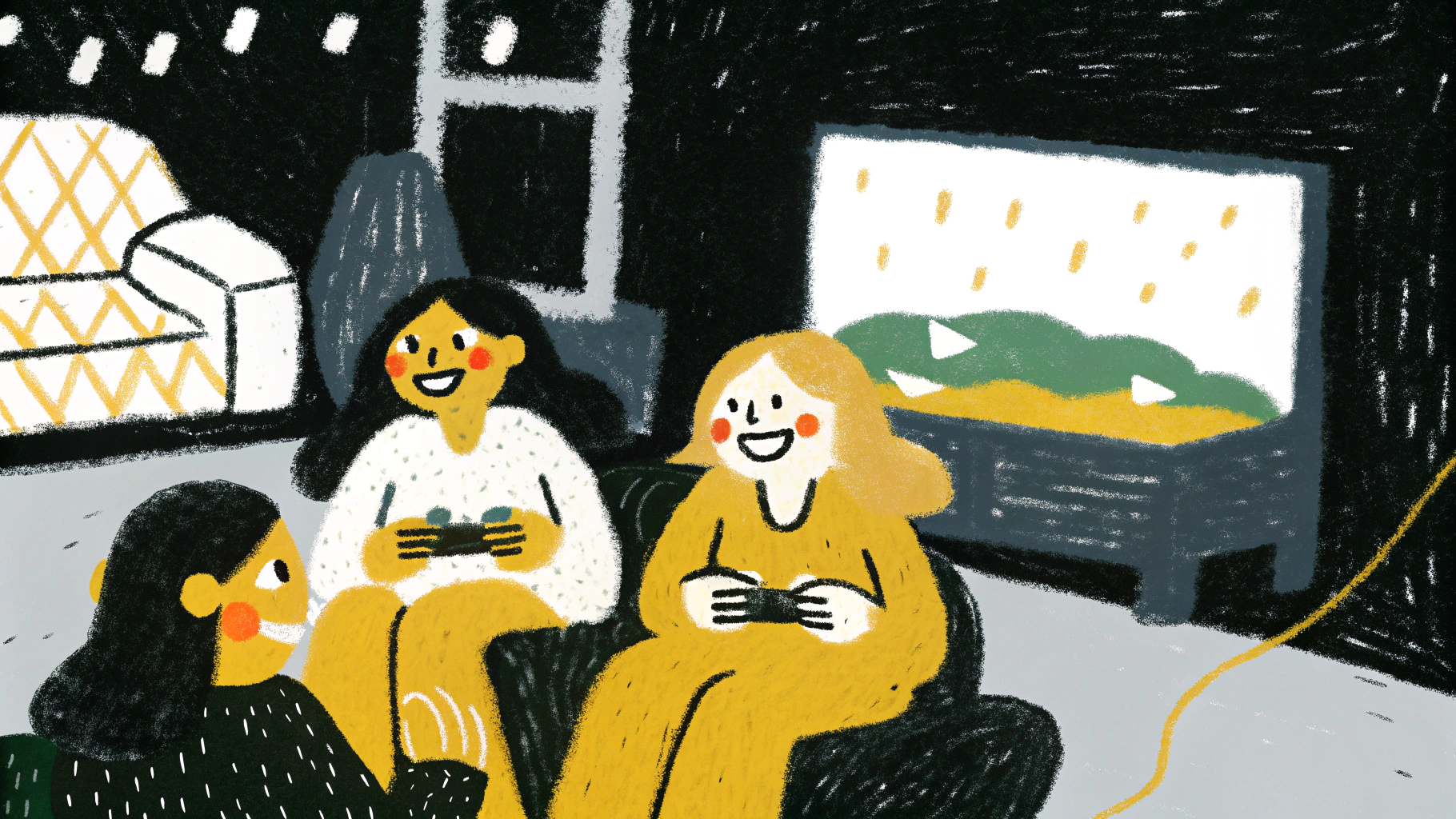
the talking that happens during co-op games is different from regular conversation. you're focused on the game but also just talking naturally about whatever. it's easy. comfortable. feels like how you used to talk before every conversation felt loaded with "how are we doing" weight.
75. competitive games where you absolutely destroy each other:
if you're competitive people, games where you play AGAINST each other are fun because trash talk is legitimately a love language.
mario kart: race each other. get hit by blue shells at the worst possible moment. accuse them of cheating even though you know they're not. throw virtual banana peels at them with malicious intent. this is romance.
super smash bros: button mashing fighting game chaos. "you're just spamming that move" "it's working though" "I HATE YOU."
any .io game: quick online multiplayer games. slither.io, agar.io, skribbl.io (drawing game), shellshock.io, krunker.io, among us. fast rounds. easy to play while on video call. low commitment.
chess: if you're into strategy. play slow games over a few days on chess.com or lichess. or quick blitz games. compete for who has the higher rating. study openings to beat them specifically.
8 ball pool: pool on your phones or computers. quick games. easy to talk between shots. surprisingly addictive.
words with friends: ongoing scrabble game throughout the week. competitive but casual. can play async whenever.
fighting games: street fighter, mortal kombat, tekken, whatever. button mashing chaos for casual players. deep strategy for serious players. person who loses has to do [silly embarrassing thing].
rocket league: soccer with cars. chaotic. fun. can play 1v1 or team up against others.
tetris 99 or tetris effect connected: competitive tetris. try to make each other lose. surprisingly intense.
speedrunners: race each other through platforming levels. use items to sabotage. pure chaotic fun.
golf with your friends: mini golf. sabotage each other. laugh when they mess up a shot. get way too competitive about mini golf.
fall guys: compete to be the last person standing through obstacle courses. watch each other fail hilariously.

76. virtual escape rooms (work together under time pressure):
tons of websites offer virtual escape rooms now. you're solving puzzles together. racing against a clock. working as a team to get out.
the manufactured stress of "only 10 minutes left" makes you focus intensely together. when you solve it, you feel accomplished as a team. when you don't, you can blame the room for being too hard and bond over shared failure.
sites: the escape game (has virtual options), enchambered, puzzle break, 60out virtual escape rooms.
either way you spent an hour completely focused on something together. that's rare in long distance.
77. online board games (if you're into that type of thing):
board game arena and tabletopia have hundreds of digitized board games. play the classics or discover new ones.
catan: if you're both into strategy and don't mind spending an hour placing settlements and trading sheep for wheat.
codenames: word association game. you're on the same team trying to guess words based on one-word clues. requires shared brainwaves.
ticket to ride: build train routes across the map. compete for routes. block each other. get petty about it.
uno: everyone knows uno. argue about house rules. play +4s maliciously. stack draw cards if you're chaotic.
cards against humanity (online versions): if you have dark humor. terrible and perfect. play at playingcards.io or other online versions.
exploding kittens: fast card game. defuse bombs. sabotage each other. takes 5 minutes. play multiple rounds.
azul: pattern building tile game. beautiful. strategic. satisfying.
splendor: gem collecting strategy game. simple to learn. hard to master.
7 wonders duel: civilization building card game for two players. competitive. strategic.
patchwork: tetris-like quilt building game for two players. weirdly engaging.
78. mobile games that connect you (play on your phones):
don't sleep on simple phone games. you can play while doing other stuff. low commitment. easy to fit into any day.
draw something: pictionary basically. draw terrible drawings for each other to guess. send increasingly absurd drawings just to make them laugh.
heads up: hold phone to forehead while they give clues over video. chaotic and funny. requires video call.
spaceteam: cooperative chaos where you're both yelling instructions at each other about spaceship controls. requires screaming. neighbors will judge you. worth it.
trivia crack: competitive trivia. play ongoing games throughout the week. trash talk when you answer correctly.
quiz up: similar to trivia crack. tons of categories. find one you're both into.
psych: make up fake answers to trivia questions to fool each other. incredibly fun.
among us: if you can get a group together. one person is the impostor. sus everyone. vote people off. destroy friendships temporarily.
wordle: share your daily wordle results. compete for fewer guesses. help each other with hard ones.
worldle: guess countries by their shapes. geography nerds rejoice.
bandle: guess songs from minimal audio clips. music lovers rejoice.
connections: word puzzle game from NYT. solve together or compete.
79. make custom quizzes about each other (test your knowledge):
use kahoot, google forms, typeform, whatever. create a quiz about your relationship. test each other. see what you remember versus what they remember.
sample questions:
what did we eat on our first date?
what was the first movie we watched together?
what's my biggest pet peeve?
which of these did NOT happen on our third date?
what's my go-to coffee order?
what's my love language?
what's my biggest fear?
what song reminds me of you?
what's my dream vacation spot?
what's the first thing I mentioned loving about you?
compare scores. discover what stuck in their memory that you forgot about. learn what mattered to them that you didn't realize.
competitive or collaborative. either way you're learning about each other.
80. play daily connection apps with built-in games:
candle has "who's more likely" (where you both guess which of you is more likely to do various things, then compare answers). has anagram puzzles to solve together. has daily challenges. has quick games that take under a minute but keep you connected.
happy couple has relationship quizzes about how well you know each other.
paired has questions and mini games.
lasting has exercises and games focused on relationship growth.
having these built into an app means you always have something to play. no setup. no thinking. just open app, see game, play together.
81. play the daily new york times games together:
wordle: compare your scores. compete for who gets it in fewer tries. help each other when stuck. celebrate when you both get it. commiserate when neither of you do. "today's wordle was brutal" becomes part of your daily conversation.
connections: solve it together on video. work out which words connect. argue about categories. "no wait, those four definitely go together" "that makes no sense" "just try it" "fine but when we're wrong it's your fault."
mini crossword: race each other. first person done wins. screenshot your time. gloat about it.
spelling bee: see who can find more words. who can find the pangram first. obsess over what words they accepted that you didn't try. share your genius level.
strands: new word game. solve together or compete.
takes 5-10 minutes daily. becomes a ritual. gives you something to talk about besides work and logistics.
82. play question games (sounds juvenile, works anyway):
would you rather: increasingly difficult choices. start easy ("would you rather fight 100 duck-sized horses or one horse-sized duck") and get progressively more serious ("would you rather lose all memories from before age 10 or never be able to make new memories").
sparks philosophical discussions. reveals priorities. "wait you'd rather [thing]? seriously?" becomes a whole conversation about values and fear and what matters.
21 questions: try to guess what they're thinking of. animal, vegetable, mineral style. gets competitive. "i'm out of questions and i have no idea." "do you give up?" "never."
truth or dare: adapted for video. truth is any question, no matter how personal (within boundaries you've agreed on). dare is stuff you can do on camera. sing a song. do an impression. show the most embarrassing thing in your room. wear something ridiculous for the rest of the call. call your mom and say something weird while they listen.
never have i ever: reveal things about your past. learn new stories. "never have i ever gotten stitches" "wait you have? what happened?" and suddenly you're hearing about a childhood injury you never knew about.
two truths and a lie: take turns. they guess which is the lie. teaches you facts about each other entertainingly. "i've been to 15 countries, i've broken six bones, i've met a celebrity" "definitely the bones one, you're too careful" "nope, the countries, i've only been to 12" "WHAT."
fuck marry kill: with celebrities, characters, whatever. reveals taste and priorities in a fun way.
most likely to: who's most likely to [do thing]. debate and defend your positions.
83. create drinking game rules for regular video calls:
if you both drink, add silly rules to normal video calls to make them more fun:
take a sip every time:
you say the same thing simultaneously
there's an awkward silence longer than 5 seconds
someone forgets what they were saying mid-sentence
you mention an inside joke
someone's roommate makes noise in the background
the video freezes at an unflattering angle
someone says "you're breaking up"
either of you checks your phone during the call
someone complains about being tired
you reference a memory from when you were together
adds silliness to regular calls. makes technical difficulties funny instead of annoying. by the end you're both tipsy and laughing at nothing.
84. game tournaments with prizes:
pick a game. any game. chess, mario kart, wordle average over a week, whatever.
play matches throughout the month. keep score. crown a champion at the end.
winner gets to pick:
next date activity
what you watch next
what you cook next time you're together
gets to make the other person do something embarrassing
gets breakfast delivered by the loser
whatever prize you agree on
stakes make it more exciting. bragging rights matter.
85. learn a new game together from scratch:
pick something neither of you knows. watch tutorials together. learn together. be equally bad at it together.
chess if neither of you plays. go. dungeons and dragons. magic the gathering. poker.
learning together means you're at the same level. no one has the advantage. you're figuring it out as a team even when competing.
86. stream games for each other:
one person plays, other watches via discord stream or whatever. backseat game. give advice. point out things they missed. laugh when they die stupidly.
then switch. they play, you watch.
not the same as playing together but still creates shared experience. you're both experiencing the story or gameplay. you have opinions about choices they make. you're invested in their playthrough.
87. create a shared gaming backlog list:
games you want to play together. rank them by priority. work through the list.
cross games off as you complete them. add new ones as they come out. you're building a gaming library of shared experiences.
88. do gaming challenges together:
"complete [game] in under X hours""beat this boss without dying""find all collectibles in [game]""speedrun this level"
compete against each other or work together. either way you're focused on the same goal.
89. play games you loved as kids:
introduce each other to childhood favorites. pokemon. zelda. mario. sonic. whatever you grew up with.
watch them experience it fresh. share your nostalgia. explain why this meant so much to you at age 10.
their reaction to your childhood game teaches you about them. your emotional connection to the game teaches them about you.
90. random game roulette:
put a bunch of games you both own in a random selector. spin it. whatever it lands on, you play that tonight.
removes decision paralysis. creates variety. might rediscover games you forgot you owned.
low effort, keeps conversations from getting stale.
38. do the new york times games together daily:
wordle (compare scores)
connections (solve together on video)
mini crossword (race each other)
spelling bee
builds a daily ritual around shared challenge.
39. play question games:
would you rather. 21 questions. truth or dare (adapted for video). never have i ever.
sounds juvenile. works anyway.
40. create drinking game rules for your video calls
take a sip every time:
you say the same thing at the same time
there's an awkward silence
one of you forgets what you were saying
you mention an inside joke
adds silliness to regular calls.
part 4: the creative projects (building something together over time)
these take more effort than daily habits or weekly dates. but they create way deeper connection. you're not just talking ABOUT your relationship. you're actively building it. creating things together. working toward shared goals.
the difference? these are ongoing. they span weeks or months. they give you something to come back to. something that's uniquely yours.
when you're working on a creative project together, you're seeing each other think. problem-solve. get frustrated. get excited. reveal who you are through the process of making something.
that's intimacy most couples never reach because they never have to collaborate on anything real.

literary connection (reading and writing together)
44. start a proper two-person book club:
pick a book neither of you have read. something meaty. something worth discussing.
read at roughly the same pace. doesn't have to be exact. but stay within a chapter or two of each other.
schedule weekly discussion sessions. pour wine. get pretentious about it. talk about:
what themes stood out
which character you relate to most (and why that's revealing)
what you'd do differently if you were the character
how the book relates to your own lives
what the author was trying to say
which parts you loved or hated
sometimes the conversation spirals into deep life stuff. "why do you relate to that character?" becomes a conversation about childhood or values or fears. the book is just the starting point.
some couples read out loud to each other over video. take turns reading chapters. it's surprisingly intimate. feels like childhood bedtime stories but adult. hearing their voice reading to you is soothing in a way that's hard to explain.
45. listen to the same audiobook and discuss it like a podcast:
if reading feels like homework, try audiobooks. you can listen while commuting or working out or doing chores.
stay synced up on where you are. text reactions in real-time. "WAIT DID YOU GET TO THE PART WHERE" "NO DONT SPOIL" "OKAY TEXT ME WHEN YOU GET THERE."
schedule calls to discuss after major sections. it's like having your own private book club podcast. you're both "reading" the same thing. experiencing the same story. building shared knowledge and references.
46. write a story together (and make it increasingly unhinged):
start simple. one person writes the first paragraph. sends it.
other person writes the next paragraph. sends it back.
keep going until you have a complete story.
the fun is in trying to surprise each other or take it in unexpected directions. "oh you thought this was going to be a sweet romance? plot twist: dragons."
make the characters loosely based on you two if you want. or completely random. doesn't matter. the process of creating something together is what matters.
save the finished story. look back at it months later and laugh at how weird it got.
47. keep a shared journal that you both write in:
google doc is easiest. or a physical notebook you mail back and forth if you're into that analog life.
write entries to each other. could be:
what happened today
how you're feeling about the relationship
memories you don't want to forget
questions for them
random observations
gratitude lists
dreams you had
fears you're processing
read what they wrote. respond. add your own entry. keep it going.
over time this becomes an incredible archive of your relationship. you can see how you both evolved. what you were worried about six months ago. how you solved problems. how you supported each other.
48. write terrible poetry for each other weekly:
once a week, each of you writes the other person a poem. intentionally make it bad. rhyme "love" with "dove." get corny. be dramatic.
the worse, the better. you're competing for who can write the most ridiculous poem while still being genuine.
"roses are red, violets are blue, i miss your face, and other stuff too" is perfect.
send them. read them out loud to each other. laugh. save them all. someday you'll have a whole collection of terrible poems that somehow mean everything.
49. start a blog or website just for the two of you:
make it private. password protected. just for you.
write posts about:
your relationship origin story
date ideas you want to try
inside jokes explained
milestones and memories
what you love about each other
challenges you're facing
trips you want to take
recipes you've tried together
literally anything
update it together. one person writes a post, the other edits or adds to it. you're building a shared digital space that chronicles your relationship.
50. create a detailed relationship timeline with photos and stories:
document everything. first time you met. first date. first kiss. first fight. first "i love you." first trip. all the moments that matter.
add photos. write detailed captions about what happened. what you were thinking. what they were wearing. what you talked about. how it felt.
update it as you go. every time something significant happens, add it.
years from now you'll have this complete history of your relationship. way better than scattered photos in your camera roll.
51. compile "quotes from our relationship":
start a document of funny or meaningful things said in your relationship.
texts that made you laugh. things they said on a call that stuck with you. inside jokes that need context. ridiculous arguments. sweet moments.
"[their name]: i'm not saying i'd fight a bear for you, but i'd definitely yell at it aggressively""[your name]: why are you like this"
you're creating an archive of your specific humor and communication style.
music bonding (connecting through sound)
52. create multiple collaborative spotify playlists for different moods:
don't just make one shared playlist. make several:
"songs that remind me of you": whenever a song reminds you of them, add it. they do the same. discuss why certain songs made the list.
"our future road trip": songs for when you're finally in a car together driving somewhere. gradually building the perfect soundtrack.
"for when you're stressed": calming music. when they're having a hard day, you can text "go listen to our stress playlist."
"getting ready to see you": hype songs for when you're traveling to reunions. songs that build excitement.
"songs for [inside joke]": themed playlists around your specific weird humor.
"songs we'll dance to in the kitchen when we live together": planning for the future through music.
each playlist becomes its own thing. its own mood. its own context.
53. have weekly "listening parties" where you DJ for each other:
schedule an hour. one person is DJ first half hour. plays songs. explains why they picked them. tells stories about when they first heard each song or what it means to them.
other person just listens. really listens. tries to understand what they're communicating through the music.
then switch. new DJ for the second half hour.
you're sharing parts of yourselves through music. it's vulnerable. it's revealing. you're showing them what moves you. what you want them to hear. what soundtrack is playing in your head.
54. learn the same instrument together from scratch:
both buy ukuleles. or keyboards. or harmonicas. whatever seems manageable.
take the same online course. youtube tutorial series. anything.
practice "together" over video. laugh at how bad you both are. help each other with hard parts. celebrate when you both can finally play a simple song.
work toward being able to play a duet. takes months. but when you finally can? that's magic you created together.

55. make each other monthly playlist capsules:
end of every month, each person makes the other a playlist that captures that month for them.
songs that match the month's mood. songs you discovered. songs that soundtracked important moments.
exchange playlists. listen to what they made. each playlist is like a time capsule of that specific month in your lives.
years later you can listen to "march 2025" and remember exactly what that month felt like.

56. send voice notes of you singing/humming songs that remind you of them:
this feels horrifying at first. but it's so intimate.
don't try to sound good. just sing/hum part of a song that made you think of them. send it.
"this song came on and i immediately thought of you because [reason]" accompanied by you badly singing the chorus.
they'll save it. listen to it on hard days. your voice singing to them, even badly, hits different than a spotify link.
57. make them playlists for specific situations:
"for your morning commute""for when you're cooking dinner""for your gym workout""for when you miss me""for when you can't sleep"
curated music for different parts of their day. shows you're thinking about their whole life, not just the parts that include you.
58. attend virtual concerts/livestreams together:
tons of artists do livestream performances. some paid, some free.
both get tickets. watch simultaneously. keep video on. dance in your separate rooms. sing along. react to songs together.
or watch recorded concerts on youtube. pretend you're both there. "this would be us in the mosh pit" "no i'd be in the back where it's safe" "coward."
visual art and creativity (making things together)
59. virtual paint and sip nights with actual effort:
this isn't just "get wine and make art." make it a whole thing.
both pick the same bob ross episode or youtube painting tutorial. get the suggested supplies (or improvise with what you have).
follow along together in real-time. both try to recreate the same painting.
compare results. whose looks more like the reference? whose went completely off the rails? whose is accidentally hilarious?
frame your terrible paintings. they're proof you created together.
60. draw each other's portraits (badly) with increasingly specific challenges:
set timer for 5 minutes. both draw the other person. share results. they'll be hilariously bad.
then add challenges:
draw with your non-dominant hand
draw without looking at the paper
draw while they're making different expressions
draw from memory after looking at them for 30 seconds
draw in a style (cartoon, anime, realistic attempt, stick figure but detailed)
save all of them. they're funny and weirdly sweet. "this is how you see me?" "you look exactly like that, what do you mean."

61. weekly photo challenges with themes:
give each other specific photo assignments weekly.
"something red in your environment""a photo that represents joy""morning light""something that scared you this week""beauty in something mundane""your favorite corner of your space"
share photos friday. discuss what you captured and why. you're learning to see the world through each other's eyes.
62. build a shared pinterest board for your entire future:
make sections:
dream house inspiration
places to travel
date ideas for next visit
fashion/style inspo
recipes to try
how we want to decorate
wedding ideas (if you're there)
future pet photos
keep adding to it. you're building a shared vision of the future. when one person adds something, the other sees it and gets excited. "oh you want a kitchen like that? okay noted."
makes the future feel tangible. real. closer.
63. create a couples social media account together:
yeah it's corny. do it anyway if you want.
make a joint instagram or tiktok. post relationship content. your date nights. your inside jokes. your creative projects.
gives you shared creative projects. forces you to think about what story you're telling about your relationship. you're curating and creating together.
plus it's documentation. you're building an archive of this time.
64. design your dream home together using actual tools:
use the sims. or minecraft. or home design apps. or just pinterest and a shared document.
plan every room. argue about whether the kitchen should have an island. debate paint colors. choose furniture. decide where the TV goes.
sounds silly but you're making decisions together. learning each other's taste. figuring out what "home" means to both of you.
"you want HOW MANY throw pillows?" "this is a reasonable amount" "this is psychological warfare."
65. make a couples website that chronicles everything:
use wix or squarespace or wordpress. build a actual website.
pages for:
how you met
timeline of relationship
photo galleries
inside jokes explained
bucket list
favorite memories
what you love about each other
keep it private or make it public. doesn't matter. you built something together that exists in the world.
66. collab on a shared mood board that evolves:
use pinterest or create a physical one (take photos and compile digitally).
both add images constantly:
things that represent your relationship
current mood
aesthetic goals
emotional states
dreams and fears
watch how it evolves over months. the visual language you build together reveals so much.
fitness and wellness together (getting healthy while connected)
67. follow the same workout program and check in daily:
pick a program. couch to 5k. 30-day yoga challenge. specific lifting routine. whatever.
both commit to it. do the workouts on your own time but text updates daily.
"day 12 done, my legs hate me""skipped today, feeling guilty""PR on squats, lets goooo"
celebrate milestones together. hold each other accountable. suffer together.
68. join the same virtual fitness classes:
peloton. apple fitness. whatever platform. same class, same time.
you're in the same virtual room. doing the same movements. suffering through the same burpees. the instructor is talking to both of you.
afterwards: "that was brutal" "i thought i was going to die" "same time next week?" "absolutely not. yes."
69. go on simultaneous walks/runs while on phone:
both put in headphones. start walking or running. call each other.
you're moving through different cities but talking like you're walking together. "there's this really cute dog" "describe it" "golden retriever puppy" "stop i'm jealous."
the conversation flows differently when you're both moving. easier. more natural.
70. do fitness challenges with real stakes:
"whoever hits 10k steps every day this week wins. loser has to [do embarrassing thing]."
"who can do more pushups by end of month."
"first person to run a 5k gets to choose our next date activity."
competition motivates. accountability works. stakes make it fun.

71. meal prep together over video:
dedicate sunday afternoon. both grocery shop saturday. sunday, video call while meal prepping for the week.
cook same recipes or different ones. compare your containers. judge each other's food choices.
"you're eating THAT five days in a row?""don't judge me."
you're setting yourselves up for a healthy week together.
72. try the same new wellness thing each month:
january: daily meditationfebruary: no alcoholmarch: new yoga styleapril: sleep schedule fixmay: new supplement routine
experiencing the same wellness challenges simultaneously. "how's the meditation going?" "i fell asleep every time" "same."
73. share fitness tracker stats and celebrate wins:
if you both have fitbits or apple watches, share your data.
celebrate each other's wins. "you hit your step goal every day this week!" "you increased your running pace!"
cheer each other on. the data makes progress visible. you're witnessing each other get healthier.
74. do simultaneous bedtime yoga:
before bed, both do the same 10-minute yoga video. on video together or separately.
helps you both sleep better. you're winding down together. syncing your sleep schedules gradually.
"goodnight i'm way more flexible now" "you did it for one day" "shut up it counts."
learning together (building skills and knowledge)
75. take a real online course together:
coursera. udemy. skillshare. masterclass. something substantial.
pick a topic neither of you knows well. web development. photography. psychology. cooking. business. whatever sounds interesting.
do the lessons together or separately. discuss what you learned. work on assignments together. take the quizzes.
you're learning something real. building actual skills. together. when it's done, you both have a certificate and shared knowledge.
76. learn each other's language if you're bilingual:
if one speaks another language, teach the other.
daily vocabulary lessons. practice conversations. correct each other's pronunciation.
"no say it like this""that's literally what i said""no listen: [repeats]""... still sounds the same."
by the time you visit, you can have whole conversations in their language. or at least order food. small wins.
77. teach each other your actual skills:
you're good at guitar? teach them.they're good at coding? they teach you.you know photography? you teach them.they know how to cook? they teach you.
structured lessons over video. homework. practice. feedback.
you're learning from each other. appreciating each other's expertise. building respect.
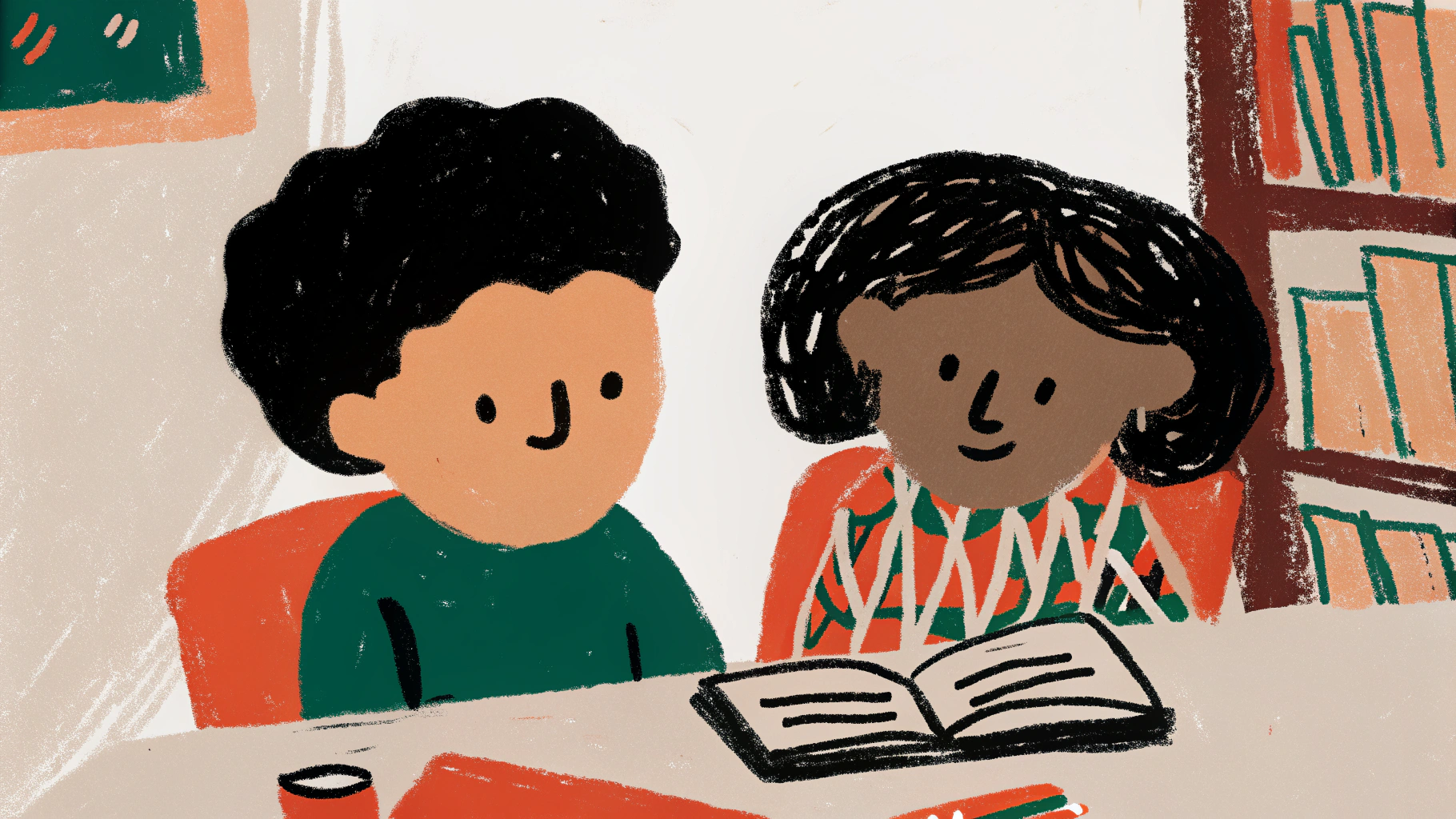
78. watch educational content together and discuss:
youtube video essays. documentaries. TED talks. lectures. whatever.
pick a topic. philosophy. history. science. psychology. art.
watch the same videos. pause to discuss. debate ideas. look up additional information. go down rabbit holes together.
"wait so basically...""no i think they meant...""okay but how does that explain..."
you're getting smarter together.
79. read the same self-help book and actually implement it:
atomic habits. attached. the five love languages. whatever seems relevant.
read a chapter at a time. discuss how it applies to your lives. actually try the exercises.
"okay so according to this book, my attachment style is...""that explains SO MUCH about you."
applying relationship concepts together makes you better at the relationship.
80. follow the same recipe blog/cooking youtube channel:
find a chef you both like. commit to trying one recipe per week from their channel.
compare results. whose turned out better. what you'd change. what you learned.
by month six you've both significantly improved at cooking and have 20+ new recipes.
these creative projects work because they give you something ongoing. something that exists outside your regular calls. something you're building that's uniquely yours.
when you're having a hard day and feeling the distance, you can look at the story you're writing together. the playlist you're building. the timeline you're documenting. proof that you're creating something together despite the distance.
that matters.
part 5: the thoughtful gestures (effort that compounds into security)
these aren't daily habits. they're not weekly routines. they're the things you do when you want to really show up. when you want them to know you're thinking about them beyond the baseline.
these are the activities that create security. that make them think "they really see me. they really care. they really chose me on purpose."
daily texts say "i'm here." thoughtful gestures say "i've been thinking about you specifically and here's proof."
classic romance (with modern twists)
81. handwritten letters that aren't just "i miss you":
actual pen and paper. sit down with intention. write them a real letter.
but don't just write "i miss you i love you thinking about you." that's fine but it's surface level. go deeper:
a specific memory you keep thinking about and why it matters
something you noticed about them that you find beautiful
a fear you have about the relationship and why you're choosing to stay anyway
what you imagine your life together looking like in five years
a story from your day that reminded you why you love them
spray it with your perfume or cologne. include something physical. a pressed flower. a photo. a ticket stub from somewhere you went together. something they can touch.
mail it. actual mail. when they check their mailbox and see your handwriting on an envelope, their whole day changes.
keep their letters. in 20 years you'll have this stack of handwritten proof of your relationship.

82. "open when" letters done right:
this idea gets recommended constantly but most people do it wrong. they write generic motivational stuff. "open when you're sad: remember i love you!"
do it better. write specific letters for specific situations in their actual life:
"open when you're about to call your mom and you're dreading it" (include why you think they're brave for having hard conversations)
"open when you're doubting whether you're good at your job" (include specific examples of their competence you've witnessed)
"open when we just fought and you're mad at me" (include an apology and reminder of what you're fighting FOR)
"open when you're about to give that presentation" (include specific affirmations about their skills)
"open when you're lonely and i'm asleep" (include voice message instructions, photos, promises)
"open when you're happy and want to celebrate with me" (include confetti, a silly challenge, a reason to be proud)
mail them all together. 10-15 letters. each one sealed. each one specific. they'll save them. open them when needed. some people keep unopened ones for years as emergency comfort.
83. care packages that show you actually know them:
anyone can throw snacks in a box. do better.
think about their actual life right now:
if they're stressed about exams: study snacks, good pens, a stress ball, a playlist for concentration on a USB, hand warmers if they study in a cold library, your hoodie, a handwritten note that says "you're going to crush this and i'm proud of you already"
if they're sick: throat lozenges, tea, soup packets, a soft blanket, tissues, a stuffed animal to hug, medicine if you know what they need, a note that says "wish i could bring you soup in person"
if they just started a new job: a coffee mug for their desk, a nice notebook, a framed photo of you two for their workspace, breath mints, emergency snacks, a card that says "you're going to be amazing at this"
if they're going through something hard: their comfort food, a journal, bath stuff, face masks, candles, cozy socks, a letter that acknowledges what they're going through without trying to fix it
the key is specificity. shows you're paying attention to their actual life, not just sending generic "thinking of you" stuff.

84. countdown gifts to reunion:
if you're seeing them in 14 days, mail them 14 small wrapped gifts. number them. "day 14" through "day 1."
they open one each morning. builds anticipation. makes the wait more bearable.
gifts can be tiny:
a photo from a specific memory with a note on the back
their favorite candy
a tea bag
a mini bottle of their favorite alcohol
a handwritten note with one reason you love them
a printed meme that will make them laugh
a usb drive with a video message
a small item that's an inside joke
a puzzle piece (last day is the final piece that completes a photo of you two)
watching that number get smaller while opening something from you every day keeps excitement high.
85. surprise delivery timing that shows you know their schedule:
don't just send food randomly. time it perfectly because you know their life:
send coffee to arrive right before their 8am meeting. text "good luck, i believe in you" right as it arrives.
send lunch to arrive at their office at 1pm on the day you know they're swamped and won't have time to eat.
send dessert to arrive at 9pm when you know they're stressed and working late.
send breakfast to arrive saturday morning with a note "here's breakfast since i can't make it for you."
send flowers to their workplace monday morning to start their week right.
the timing is what makes it hit. shows you're thinking about their schedule. their rhythm. their needs in the moment.
86. books with notes in the margins:
send them a book you think they'll love. but before you mail it, read it yourself and write notes throughout:
underline passages that reminded you of them. write in the margin why.
mark pages that made you think of them. add sticky notes explaining.
annotate it with your thoughts, reactions, questions you want to discuss with them.
on the title page write why you chose this book for them specifically.
they're not just reading a book. they're reading it with you. seeing your thoughts. understanding how you think. it's intimate.
87. send them your worn clothing (and make it meaningful):
don't just mail a random shirt. do it right:
wear YOUR favorite hoodie for three days straight. sleep in it. it needs to smell like you.
include a note: "this is my favorite hoodie. i wore it thinking about you. sleep in it when you miss me."
if they wear your clothes, you're literally wrapping them in your presence. it's comfort they can touch.
bonus: ask for one of theirs in return. wear it. send photos. "this smells like you and i'm never taking it off."
88. physical photo album with detailed captions:
print actual photos. not just digital. physical pictures they can hold.
put them in a real album or scrapbook. add captions that tell stories:
"this is from our second date when you laughed so hard at that joke you snorted and then got embarrassed but i thought it was the cutest thing"
"this is us at [place]. you wore that shirt i love. this was before we said i love you but i knew. i could tell you knew too."
"this one is blurry but it's my favorite because you're genuinely smiling, not posing."
include ticket stubs. receipts from restaurants. random paper memories.
mail it. they have something physical to flip through. something that doesn't require a charged phone. something real.
89. record video messages for future moments:
record multiple short videos for them to watch later:
"watch this when you're about to do [specific scary thing they mentioned]" (record yourself giving them a pep talk about why they can do it)
"watch this when you're doubting if i really love you" (record yourself explaining specific things you love about them)
"watch this when you're feeling insecure" (record yourself listing their best qualities with examples)
"watch this when you miss my voice" (record yourself telling a story or reading something or just talking about your day)
"watch this on your birthday" (record a happy birthday message months in advance)
save them all to a google drive. send them the folder. label each video clearly. they open them when needed.
90. learn something secretly to surprise them:
spend weeks learning something specifically for them:
if they love a certain song, learn it on guitar. surprise them by playing it next time you're together.
if they mentioned their mom's recipe, learn to make it. make it for them next visit.
if they speak another language, learn basic phrases. surprise them by speaking it.
if they mentioned wanting to learn something, learn it first, then teach them.
the effort. the time investment. the fact that you did this in secret just to make them happy. that's love.
91. memory jar they open all at once:
every time you think of a reason you love them or a memory that matters, write it on a small piece of paper. fold it. put it in a jar.
do this for months. fill the jar.
next time you see them, give them the jar full of tiny love notes.
they open them all. read them all. one after another. it's overwhelming in the best way.
"the way you laugh at your own jokes before you finish telling them""when you called me at 2am just because you couldn't sleep and wanted to hear my voice""how you always remember what i said even about stupid things"
hundreds of tiny specific moments that prove you've been paying attention.

92. commission custom art of you two:
etsy. fiverr. local artists.
star map of the night you met. coordinates of where you each live. illustration of you two in your favorite memory. cartoon version of you two. painted portrait.
it's personal. it's thoughtful. it required effort and money and planning.
frame it. send it. they hang it up. every day they see proof that you think about them.
digital gestures that still hit hard
93. create a private instagram/photo stream just for you two:
not your main accounts. a secret account that's just for you.
post all the stuff that's too personal or random or inside-joke-y for your actual instagram.
photos of your day. screenshots of funny texts. memories. random thoughts.
only you two can see it. it's your private archive of moments.
94. shared photo album that automatically syncs:
set up google photos or icloud shared album.
everything you photograph automatically gets added to a shared album you both can see.

you're building a complete visual archive of your lives. when you miss them, scroll through. see their day. see them living life. see proof you're still part of each other's worlds.
95. design their phone wallpaper:
make them a custom lock screen or home screen.
could be a photo of you two edited to look good as a wallpaper.
could be a design with their favorite quote.
could be something abstract that reminds them of you.
they see it every single time they unlock their phone. which is like 100 times a day. that's 100 daily reminders that you thought about this.
96. shared note document with reasons you love them:
create a note that you both can edit.
title it "reasons we love each other" or "why this works" or whatever.
whenever either of you thinks of something, add it to the note.
"the way you always text me when you arrive somewhere safe even though i didn't ask""how you remember my weird food preferences""the specific way you laugh at things you find actually funny versus things that are just polite laughing"
over time it becomes this huge document of specific love. read it when you're doubting the relationship. instant security.
97. make a website that's just about them:
buy a domain. build a whole website.
pages about:
why you love them (with photos and specific examples)
your history together (timeline with details)
inside jokes explained
bucket list of things you'll do together
photo gallery
their best qualities
send them the link. they have a whole website celebrating them. made by you. that exists on the internet. forever.
98. edit actual videos with music and everything:
compile clips and photos. add music. use actual editing software or apps.
make a video of:
your relationship so far
a tribute to them specifically
that trip you took together
your favorite moments
all the times they made you laugh
don't just post it. send it privately. make it something special just for them.
99. voice message journal you both maintain:
instead of writing in a shared journal, record voice notes.
talk about your day. your feelings. them. the relationship. future plans. random thoughts.
they listen. respond with their own voice note. keeps going.
months later you have hours of audio. each other's voices. thoughts. feelings. memories. all preserved.
100. if you're into notion or organization, build a whole relationship system:
create a notion workspace just for you two.
databases for:
date ideas with ratings after you try them
recipes you want to cook together
trips you want to take
inside jokes with timestamps
important dates
gift ideas for each other
bucket list items with status tracking
things you've learned about each other
nerdy as hell. incredibly thoughtful. shows you're thinking about the relationship as something you're actively building.
part 6: the future-planning stuff (hope is what keeps you going)
one of the most powerful tools against distance is hope. concrete, specific hope about when and how things will be different.
vague "someday we'll be together" isn't enough. you need actual plans. dates. milestones. things to work toward.
distance is easier when you know it's temporary. when you have proof you're building toward something.

short-term planning (the next reunion)
101. always always always have the next visit date locked in:
this is non-negotiable. as soon as one visit ends, before you even leave the airport, lock in the next one.
even if it's months away. even if it's tentative. having a date on the calendar makes everything easier.
"86 days" is way more manageable than "sometime in a few months i guess."
use candle's countdown widget or any countdown app. stick it on your home screen. you both see the same number getting smaller every day.
watching "43 days" become "42 days" become "41 days" is motivating. you're counting down to the same moment together.
102. plan the next visit together in detail:
don't just know when. know what.
make a shared google doc or note. title it "weekend of [date] plans."
brainstorm:
where are you meeting? whose city? neutral location?
what's the first thing you'll do when you see each other?
restaurants you want to try
activities you've been wanting to do
museums or attractions
whether this is an adventure trip or a stay-in-bed trip
what movie you'll watch
what you'll cook together
one new thing you'll try together
keep adding to it as you think of stuff. the planning is part of the fun. you're building anticipation together.
103. create a "first 24 hours" plan:
specifically plan what you'll do the first day you're together.
because the first few hours can be weird. you've been digital for so long that physical presence feels different. having a loose plan helps.
maybe:
airport pickup → drive to [place] → get food → go to your place → spend rest of day just existing together → order dinner in → watch that show → sleep
or:
meet at [restaurant] → walk around [area] → go back to your place → cook together → talk for hours → sleep
having the plan removes decision paralysis. removes the "what do you want to do" "i don't know what do you want to do" loop.
104. surprise plan ONE thing they don't know about:
tell them most of the plan. but keep one thing secret.
"friday we're doing [thing] and saturday we're doing [thing] and sunday i have a surprise."
could be:
reservations at their favorite restaurant they thought was too expensive
tickets to see [thing] they mentioned wanting to see
a mini road trip to [place] nearby
meeting up with their friend who lives nearby as a surprise
an activity they've always wanted to try
the surprise makes them feel special. like you planned something just for them.
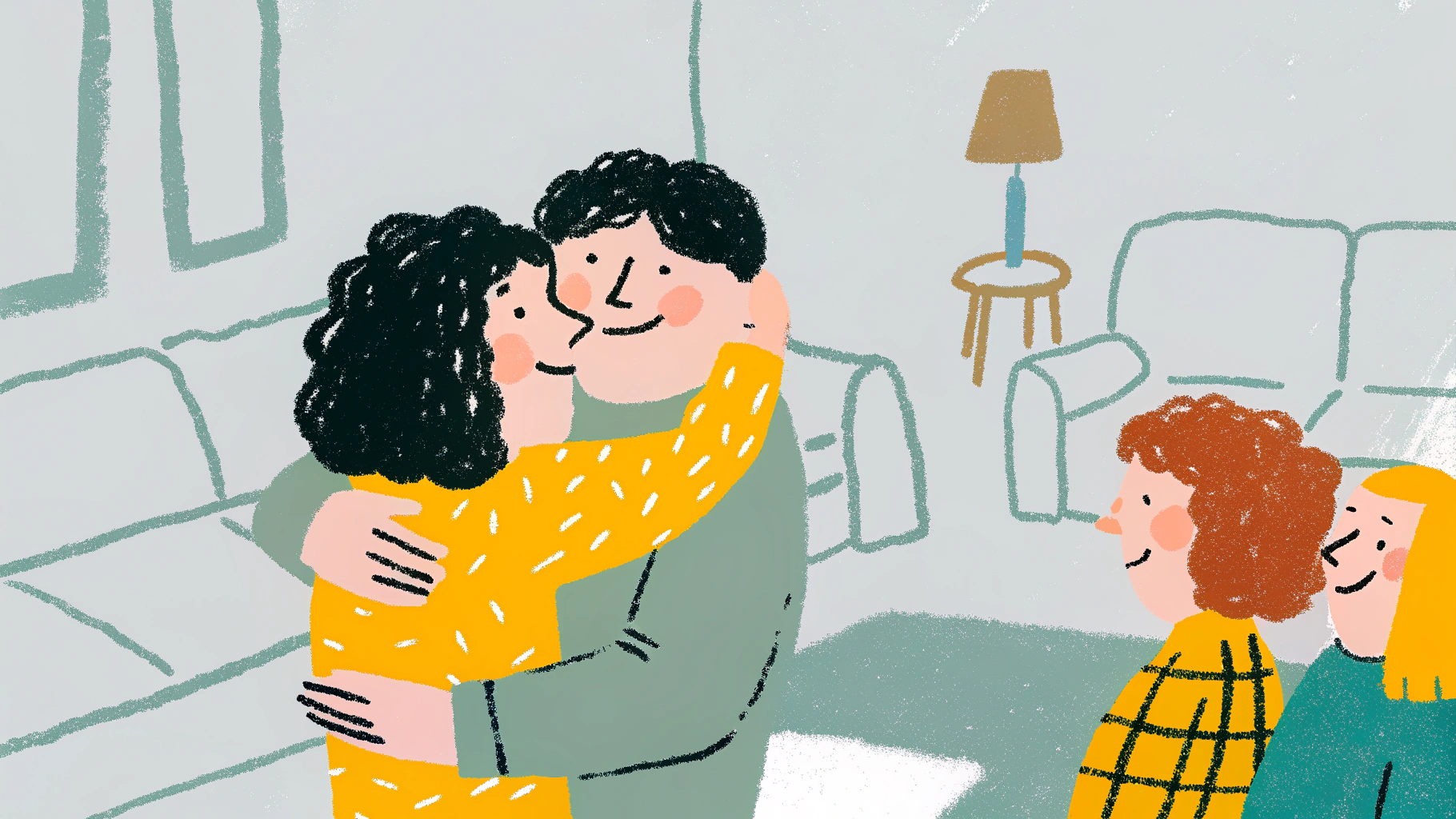
105. set expectations about the visit:
talk honestly about what kind of visit this is.
is this a "we're going on adventures" trip or a "we're staying in bed for 72 hours" trip?
are we doing tourist stuff or acting like locals?
is this about exploring the city or about finally having physical time together?
are we being social with friends or is this just us?
getting aligned prevents disappointment. prevents the "i thought we were going to do stuff" "i thought we were just going to be together" mismatch.
106. create a "last day" ritual:
plan something special for the last day before separation.
could be:
going to a specific place that's "yours"
having a nice dinner
taking a specific photo
exchanging letters to read on the plane
making a time capsule to open next visit
having a ritual makes goodbyes slightly less awful. you're ending on a high note. creating one last good memory before the hard part.
medium-term planning (the next 6-12 months)
107. mark all your reunion dates on a shared calendar:
if you can predict when you'll see each other (holidays, breaks, specific weekends), mark them all.
suddenly the distance looks different. you're not just endlessly waiting. you can see "february we'll be together. march we're apart. april we'll have that long weekend. may we're apart but it's short. june we'll be together for two weeks."
it creates rhythm. structure. you can plan your life around these dates.
108. set mini-goals for the relationship:
not just "survive distance." actual relationship development goals.
by [date]:
we'll have finished reading [book] together
we'll have tried [number] new recipes
we'll have learned [skill] together
we'll have saved [amount] for moving costs
we'll have had [difficult conversation] about [thing]
working toward goals together even while apart keeps you feeling like a team.
109. plan a "big" trip together:
not a quick weekend visit. an actual trip. somewhere neither of you lives.
could be 6 months away. could be a year away. but pick a place. start planning.
research hotels. make itineraries. save money for it. talk about it constantly.
"okay but when we go to [place] we HAVE to try [thing]""adding that to the list"
the trip becomes this concrete thing you're working toward together.
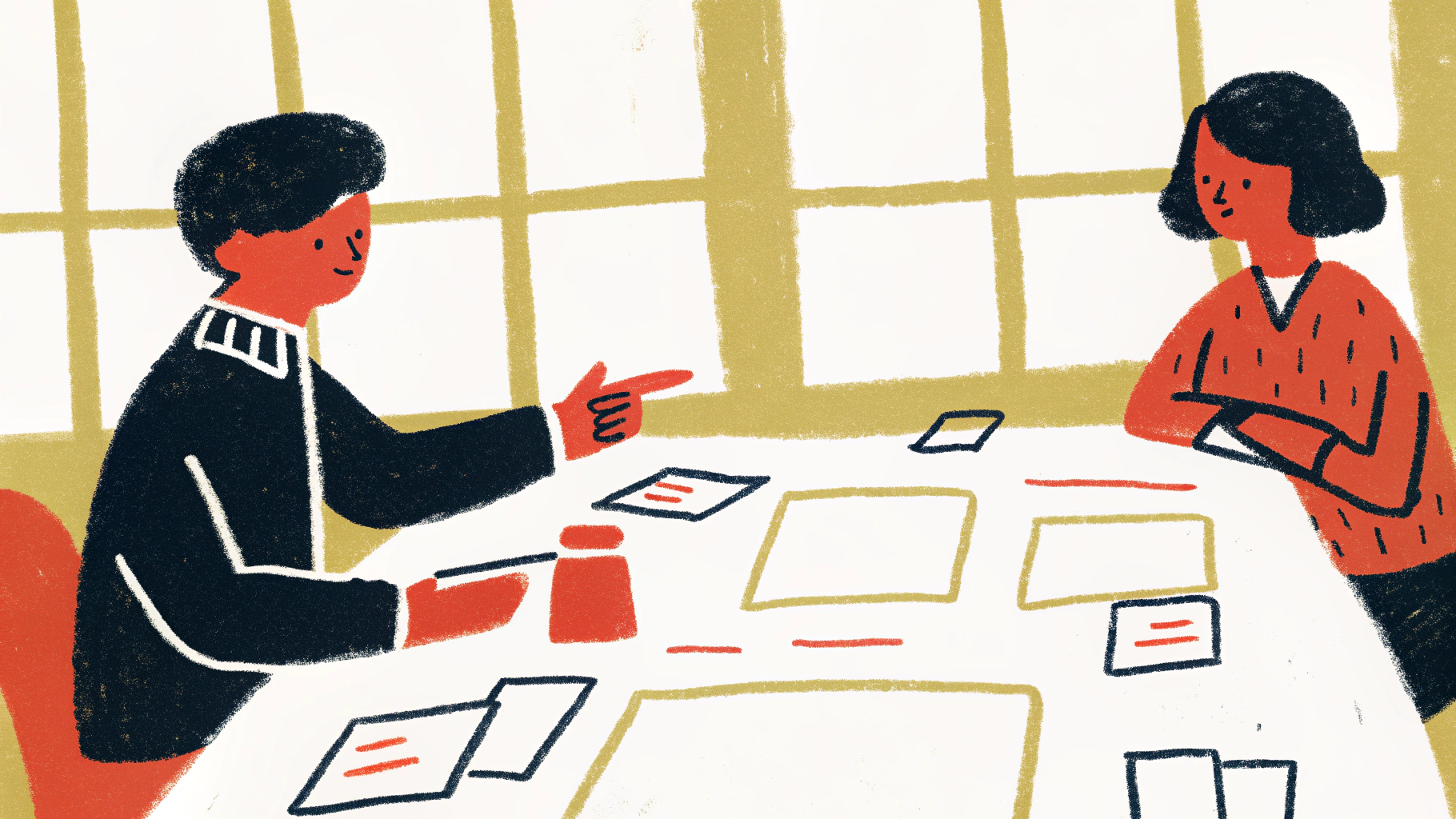
110. decide on communication experiments to try:
"next month let's try having video coffee dates every morning""let's try going two weeks without any texting, only voice notes""let's try using [app] for a month and see if we like it"
treating the distance as something you're actively experimenting with keeps it from feeling stagnant.
111. schedule difficult conversations in advance:
if there are hard things you need to discuss (timeline for closing distance, concerns about the relationship, life plans), schedule them.
"can we talk about [topic] on our call saturday?"
gives both of you time to think. prevents ambushing each other with hard conversations.
112. plan content consumption together:
"by [date] we'll have watched the entire series""next month we're both reading [book]""over the next 3 months we're watching all the marvel movies in order"
gives you ongoing shared experiences. always something new to talk about.
long-term planning (closing the distance)
113. have the "how does this end" conversation:
sit down (virtually) and actually discuss:
when do we want to close the distance?
who moves? or do we both move somewhere new?
what has to happen first? (finish school, get certain job, save certain amount, etc)
what's our absolute deadline for distance? when do we refuse to keep doing this?
sounds heavy but it's necessary. vague "someday" creates anxiety. concrete "after i graduate in may 2026" creates peace.
114. make an actual timeline:
create a document. title it "path to living together."
month by month:
now: both working on [goals]
3 months: [person] applies to jobs in [city]
6 months: decision point on [thing]
9 months: start seriously apartment hunting
12 months: [person] moves
14 months: other person follows
obviously things change. but having a rough timeline means you're working toward something specific.
115. talk about the realistic logistics:
money. jobs. apartments. health insurance if you're american. visas if international.
who can transfer jobs easier?who has more career flexibility?what city makes sense financially?what do both of you need in a living space?how much savings do we need before someone moves?
unsexy but necessary. distance ends when the logistics work.
116. discuss what kind of life you want together:
when you're finally in the same place, what does life look like?
do you want to live in a city or suburbs?what matters to you in a living space?how do you want to spend weekends?what does your social life look like?how do finances work?what's your routine?
getting aligned on this stuff before you move prevents the "we're finally together but we want different things" disaster.
117. plan a "trial run" of living together:
before anyone actually moves, spend 2-3 weeks together in one place.
not a visit. a trial. you're simulating actually living together.
grocery shopping together. splitting chores. cooking. working from the same space. having lazy sundays. dealing with each other's annoying habits. navigating disagreements.
if it works, great. if issues come up, you can address them before someone quits their job and signs a lease.

118. save money together for the move:
open a shared savings account if possible. or just track it separately but know you're both saving.
set a goal. "$5k each for moving costs" or "$10k together for first + last + security deposit."
celebrate milestones. "we're halfway there!" "we hit the goal early!"
working toward a financial goal together makes distance feel more manageable. every dollar saved is closer to being together.
119. research places to live together:
spend dates looking at apartments online. zillow. apartments.com. whatever.
"okay what about this one?""no look at that kitchen, that's tiny""yeah but it has parking""okay added to the maybe pile"
by the time someone's ready to move, you already know what you're looking for.
bucket list and dream planning
120. make a massive bucket list of things to do together:
break it into categories:
big bucket list (things that take real planning):
travel to [country]
go to [specific event]
road trip across [region]
learn to [significant skill]
adopt [pet]
medium bucket list (things you'll do when you visit):
visit [museum]
eat at [specific restaurant]
see [local attraction]
try [activity]
small bucket list (things you'll do once you live together):
cook [meal] together
binge [show]
go grocery shopping together
have a lazy sunday morning
decorate for [holiday]
host a dinner party
adopt morning coffee routine
keep adding to it. cross things off when you do them. celebrate each completion.
121. create a "50 dates" list:
brainstorm 50 specific dates you want to go on together.
number them. get specific.
"#23: picnic at [specific park] at sunset with [specific food]""#41: take a cooking class for [specific cuisine]""#7: movie marathon of all [director] films"
cross them off as you complete them. some will take years. that's fine. you're building a list of experiences you'll share.
122. make a pinterest board called "our future life":
sections for everything:
home:
kitchen inspo
bedroom aesthetic
living room setup
how we'll organize
paint colors we like
experiences:
places to travel
dates to go on
activities to try
lifestyle:
morning routines
how we'll spend weekends
hobbies we'll do together
practical:
recipes to learn
budget tips
moving checklists
you're visualizing the future together. making it real in your minds before it's real in life.

123. write letters to your future selves:
both write a letter addressed to "us when we're finally living together."
talk about:
what distance taught you
what you're looking forward to
how you hope your relationship evolves
specific things you'll do when together
promises you're making to each other
seal them. open them together on your first night living together.
124. plan your first week living together:
specifically plan what you'll do the first seven days you're finally living in the same place.
day 1: move in, order pizza, sleep in YOUR shared bedday 2: grocery shop together for the first time, cook dinner, unpackday 3: explore your new neighborhood, find your new favorite spotsday 4: regular life, what does normal look like?day 5: have people over? or stay in?day 6: start building actual routinesday 7: celebrate surviving the first week
planning it makes it feel real. gives you something concrete to look forward to.
holidays and special occasions (making big days not suck)
holidays apart are brutal. birthdays. anniversaries. valentine's day. christmas. thanksgiving. new year's. all the days that are supposed to be spent with someone you love, and you're spending them alone or with other people while missing them.
everyone else is posting couple photos. you're texting. everyone else is together. you're apart. it feels extra lonely on days that are specifically about togetherness.
but you can make these days special despite distance. here's how.
91. birthdays: make it a whole week, not just one day:
their birthday isn't just birthday. it's birthday week.
send something small every day of the week leading up to their birthday. letters. small gifts. food deliveries. video messages. each day they get a piece of birthday celebration from you.
on the actual day:
wake them up with a video call (timezone permitting). sing happy birthday terribly. make them blow out a candle on video.
have breakfast delivered to them. or coffee. or their favorite brunch food.
schedule a proper birthday date that evening. video call. play their favorite game. watch their favorite movie. do whatever they want. it's their day.
send them a birthday cake or cupcakes if possible. so they have something to blow out candles on.
make a video compilation of people they love saying happy birthday. coordinate with their friends/family. send it to them as a surprise.
end the night with a love letter. specific reasons you're grateful they were born. what your life would be missing without them.
92. your anniversary: recreate your first date virtually:
order the same food you ate on your first date. or as close as possible.
wear similar outfits if you remember what you wore.
watch the same movie you watched. listen to the same music.
go to the same place virtually (google street view of the restaurant, video call from similar location, whatever).
talk about that first date. what you were thinking. when you knew you liked them. what you were nervous about. what you remember most.
make it a tradition. every year you recreate first date as closely as possible.
93. valentine's day without being corny (or lean into the corn, your choice):
option A: ignore it. "valentine's day is a corporate scam, let's have a normal day." valid.
option B: embrace it fully. make it ridiculous. go all out.
send flowers/chocolate obviously. but also:
make them a cheesy valentines day card (handmade, terribly drawn hearts, bad rhymes)
schedule a fancy virtual date (both dress up, both make nice food, candles, the works)
write them a love letter that's actually sincere despite the cheese
play love song playlist while on video call
watch the most romantic movie you can find and make fun of it together
both go to build-a-bear website and design bears for each other virtually
send them a singing telegram if you hate them (jk but also maybe)
option C: anti-valentine's day. wear all black. watch horror movies. eat pizza. actively reject the holiday together. bond over your mutual disdain for forced romance.
94. christmas/holiday season:
the whole month of december (or whatever holiday you celebrate), do advent calendar style activities:
dec 1: both mail each other small gifts (arrive by dec 24)dec 5: watch same christmas moviedec 10: build gingerbread houses separately, compare via videodec 15: exchange wish lists for next visitdec 20: cook holiday meal "together"dec 24: open gifts on video calldec 25: call while opening presents with families, introduce your person via video
if you can't be together for the actual holiday:
schedule your "personal holiday" for when you CAN be together. december 28th can be your christmas if that's when you're together.
send holiday care package. festive treats. small ornaments. holiday-scented candle. cozy socks. hot chocolate mix. whatever makes it feel festive.
make sure you video call on the actual day, even if briefly. don't let them spend the whole holiday without seeing your face.
95. new year's eve (celebrate twice for two timezones):
your midnight: they video call you. celebrate your new year together. watch your countdown. cheer when your clock strikes twelve.
their midnight: you video call them. celebrate their new year together. watch their countdown. cheer when their clock strikes twelve.
you get to celebrate new year's twice. you get to kiss them virtually twice. you get two celebrations.
or if timezones allow, stay on video call from their midnight through your midnight. celebrate both times together.
make new year's resolutions together. share what you want for the coming year. make relationship goals.
96. thanksgiving (if you celebrate):
if you can't be together, video call during the meal. set up phone/tablet at the table. they're virtually at dinner.
take turns saying what you're grateful for. include each other obviously but also be specific about the relationship. don't just say "i'm grateful for you." say "i'm grateful for how you [specific thing]."
cook the same dish separately in the days before. exchange recipes. coordinate. then you're both eating the same thing on thanksgiving even if you're at different tables.
send them a "thankful for you" letter that arrives thanksgiving morning.
schedule a "friendsgiving" visit as close to thanksgiving as possible if you can't do actual thanksgiving.

97. their family events you're missing:
graduations. weddings. funerals. big family dinners. times when you really should be there but can't be.
send flowers/gift to the event with a card.
text them throughout. check in. "how's it going?" "thinking about you." "wish i was there."
video call right before or right after if possible. "good luck today" or "how was it?"
send them something they'll see before they leave. "you're going to do great at your presentation" "you look amazing in that dress" "wish i could be there but i'm proud of you."
98. when they're sick or injured and you can't be there:
this is the worst. they're suffering and you're useless from distance.
send them a care package immediately if possible. expedited shipping. soup. medicine. tea. comfort items. tissues. cough drops. gatorade. whatever they need.
send food delivery. breakfast. lunch. dinner. they don't have to cook.
check in frequently without being annoying. "how are you feeling now?" every few hours.
video call so they can see your face even if they feel gross and don't want to be on camera. "you don't have to turn your camera on, i just want to be here."
read to them. watch something together. be company even though you can't physically help.
send flowers or stuffed animal with a note. something to hug.
coordinate with their local friends/family to check on them in person if possible.
99. celebrate small wins together:
they got the job. they aced the test. they finished the project. they hit a personal goal.
celebrate it. make it special. don't let distance minimize their achievements.
order them champagne/wine/their favorite drink. send it to arrive the day they get the news.
schedule a celebration dinner date. both dress up. make/order nice food. toast to them.
make a big deal about it. "i'm so proud of you." specific praise about why this matters and what it says about them.
ask them about it in detail. let them brag. let them tell the whole story. be their hype person.
100. create new traditions that are just yours:
forget what couples "normally" do for holidays. make up your own traditions.
"every halloween we watch the same horror movie""every year on [random date] we celebrate the day we met""every december 15 we exchange wish lists and budget plans""every april we make each other playlists of spring songs""every june we plan our next big trip"
traditions are what you make them. distance doesn't stop you from building rituals that matter to you specifically.
part 7: the hard stuff (because distance isn't always romantic)
distance isn't always romantic. sometimes it just sucks and no amount of cute activities fixes it. sometimes you fight. sometimes you're miserable. sometimes outside people make it harder. sometimes one of you is struggling and the other is fine and that imbalance is weird.
let's talk about all of it.
fights and conflict (how to fight productively from different zip codes)
you will fight. it's inevitable. but fighting over text or call is different from fighting in person. you can't read body language. tone gets misinterpreted. you can't hug it out after. one person can just... leave the conversation.
fighting badly can kill a long distance relationship fast. fighting well can actually make you stronger.
101. learn the difference between "call fight" and "text fight":
some things should NEVER be fought about over text:
anything with the words "we need to talk"
big relationship issues
accusations of any kind
anything where tone matters
anything you're actually angry about
text fights escalate. you can't hear their voice. you read everything in the worst possible tone. you say things you wouldn't say to their face. you have time to craft mean responses. it's poison.
if something's actually bothering you, call. video call if possible. see their face. hear their voice. fight like humans, not like angry text generators.
102. never send "we need to talk" without context:
that text is psychological warfare. they immediately panic. spiral. assume the worst. spend hours anxious.
instead: "hey can we talk about [specific thing] tonight? not urgent, just want to discuss."
specific. not scary. gives them time to prepare mentally without catastrophizing.
103. establish a "timeout" system:
when a fight is escalating and getting nowhere, either person can call timeout.
"i need 20 minutes to cool off.""i need to sleep on this.""i need a break from this conversation."
timeout rules:
both people agree to stop talking about it
you MUST come back to it (don't use timeout to avoid the issue forever)
set a specific time to resume: "let's talk about this tomorrow at 7pm"
prevents saying things you can't take back. gives you both time to think.
104. don't fight in public chat channels:
no posting vaguely about the fight on social media. no venting to mutual friends mid-fight. no making it everyone's business.
keep fights private. between you two. don't weaponize your community against them.
105. understand fighting styles (yours and theirs):
some people need to talk it out immediately. some people need space first.
some people get loud. some people shut down.
some people want to fix it instantly. some people need to process.
neither style is wrong. but you need to understand both styles and find middle ground.
"i know you need space, but i need to know we're okay. can we at least agree to talk tomorrow?"
"i know you want to talk now, but i need an hour to think. can we call at 8?"
106. no stonewalling, no silent treatment:
going completely silent as punishment is relationship poison. it's manipulation. it's cruel.
if you need space, say so. "i need time to think, i'll message you in a few hours."
if they're giving you silent treatment, call them out. "i need you to at least acknowledge we're fighting. silence isn't fair."
if they continue stonewalling regularly, that's a them problem that might end the relationship.
107. fight about the actual problem, not the distance:
when you're fighting about dishes or plans or whatever, you're usually actually fighting about the distance.
"you never make time for me" is usually "i miss you and i'm scared we're drifting."
"you don't care about my life" is usually "i feel disconnected from your daily reality."
dig deeper. what's the real issue?
108. use "i feel" statements, not accusations:
don't: "you always ignore me"do: "i feel ignored when you don't respond for hours"
don't: "you don't care about this relationship"do: "i feel like i'm putting in more effort and it's exhausting me"
don't: "you're terrible at communication"do: "i feel disconnected when we only have surface level conversations"
i-statements let you express hurt without attacking them.
109. apologize specifically, not generically:
don't: "sorry"don't: "sorry you feel that way"don't: "sorry but [justification]"
do: "i'm sorry i [specific action]. that was hurtful. i understand why you're upset."
do: "i'm sorry i dismissed your feelings. i should have listened better."
specific apologies show you actually understand what you did wrong.
110. repair attempts during fights:
in the middle of a fight, try to break tension:
"okay wait, can we pause? i love you and i hate that we're fighting.""i'm not trying to hurt you, i think we're talking past each other.""can we restart this conversation?"
repair attempts save fights from becoming relationship-ending.
111. no bringing up past fights:
fight about THIS issue. not about that thing from three months ago.
"you always..." = bringing up past fights.
stay present. stay specific.
112. have a "fight cooldown" ritual:
after a fight is resolved, do something together. watch something. play a game. joke around.
don't just end the call after resolving. reconnect. remind yourselves you're okay.

dealing with outside pressure (because other people have opinions)
your friends don't get it. your family is skeptical. people keep asking when you're moving. strangers tell you long distance never works. someone's hitting on you or them. everyone has opinions about your relationship.
fuck 'em. but also, here's how to handle it.
113. prepare your "long distance elevator pitch":
people will ask. constantly. have a practiced answer ready.
"how do you make it work?"your pitch: "we visit every X weeks, we video call daily, we have a plan to close the distance by [date]. it's hard but worth it."
short. positive. shuts down further probing.
114. set boundaries with friends who don't support it:
if your friend keeps saying "long distance never works" or "you should just break up," shut it down.
"i appreciate your concern, but i need you to support this or stop commenting on it."
if they can't respect that, spend less time with them. your relationship doesn't need their approval.
115. handle the "when are you moving" question:
family/friends will ask this constantly. especially family.
have an answer: "we're planning to close distance by [specific date or event]" or "we're working on it, we'll let you know when we have concrete plans."
then change the subject.
you don't owe anyone a detailed timeline.
116. deal with people hitting on you/them:
it will happen. someone at the bar. a coworker. a classmate. someone who knows you're long distance and thinks that means available.
be clear: "i have a partner" not "i have a partner but they're far away."
tell your partner when it happens. transparency prevents problems.
"someone hit on me today, i shut it down immediately, wanted you to know."
117. don't hide your relationship:
post them on social media. talk about them. make it known you're taken.
hiding your relationship because "it's complicated" makes people think you're available or ashamed.
118. defend your relationship to skeptics:
when someone says "long distance never works":
"it's working for us."
you don't have to justify. you don't have to convince them. just shut it down.
119. handle family doubts:
family might not understand. "why don't you just date someone local?"
"because i love them. distance is temporary. please support us."
if they can't, minimize conversation about the relationship with them.
120. navigate friend group dynamics:
your single friends might not get it. they want you to go out, but you're calling your partner.
balance is key. don't ditch your friends for your partner, but also don't feel guilty for prioritizing the relationship.
"i can't tonight, i have plans with [partner]. but i'm free tomorrow!"
121. deal with your person's ex (if relevant):
if their ex is still around (same friend group, same workplace, whatever), that's uncomfortable.
trust them. express your discomfort if needed. "i trust you, but it makes me uncomfortable when [specific situation]."
they should prioritize your comfort. set boundaries with the ex.
122. handle people comparing your relationship to others:
"why can't you just be normal and date someone here?"
your relationship doesn't have to be normal. it has to work for you.
"this works for us. that's what matters."

imbalance periods (when one person is struggling and the other isn't)
relationships aren't always 50/50. sometimes it's 80/20. sometimes one person is drowning and the other is thriving. sometimes you're in different life phases. distance makes this worse because you can't physically be there to help.
123. recognize when you're in an imbalance period:
one person is in finals, the other is on break.one person is depressed, the other is doing great.one person just started a demanding job, the other has free time.one person is dealing with family crisis, the other's life is calm.
name it. "i know you're going through a lot right now and i'm not. that's okay. i'm here."
124. the struggling person: communicate your needs:
don't expect them to read your mind.
"i need more support right now""i need you to check in more""i need you to understand i can't give as much right now""i need you to be patient with me"
specific asks. they want to help but might not know how.
125. the thriving person: show up without resentment:
yes, you're doing more right now. that's temporary.
check in more. send more encouragement. carry more of the emotional labor.
but also: don't martyr yourself. don't build resentment.
"i'm happy to support you but i need us to check in about when things will balance out again."
126. set temporary modified expectations:
during imbalance periods, lower the bar.
"for the next two weeks while you're in finals, let's just text goodnight. we don't need daily calls."
"while i'm dealing with this family stuff, i might not be great at planning dates. that's temporary."
permission to not be perfect prevents guilt and resentment.
127. schedule a "check-in" date for after the crisis:
"once finals are over, let's have a long call and reconnect properly."
"after this work deadline, we're planning a visit. something to look forward to."
having a light at the end of the tunnel helps both people.
128. the struggling person: don't completely disappear:
even if you're drowning, send SOMETHING.
"buried today, thinking of you, will call this weekend."
disappearing completely makes them anxious and feel unimportant.
129. the thriving person: don't guilt trip:
don't say "i guess you don't care about us anymore"don't say "i'm always the one reaching out"don't make their struggle about you
instead: "i miss you. i understand you're swamped. let me know how i can support you."
130. both people: trust this is temporary:
imbalance periods end. finals end. projects finish. depression lifts (usually). family crises resolve.
remind each other: "this isn't forever. we'll get through this."
131. know when imbalance becomes the permanent state:
if it's been months and one person is always giving 80% and the other is always giving 20%... that's not imbalance anymore. that's the relationship.
have the hard conversation. "this doesn't feel balanced anymore. what's going on?"
might mean the relationship isn't working. might mean someone needs therapy. might mean you need to close the distance sooner. but you can't ignore it.

maintaining your own life (don't make them your entire personality)
the death spiral of long distance: you stop having a life outside the relationship. they become your only source of happiness. you're just waiting for calls. waiting for visits. waiting for your life to start when you're together.
that's not healthy. that's not sustainable. that makes you clingy and boring and dependent.
132. keep your friends (even though it's hard):
your friends are still important. don't ghost them because you're always on calls with your partner.
make time for friends. go out. have experiences that aren't about the relationship.
if your friends are drifting away because you never see them, that's a problem.
133. have hobbies that are just yours:
not everything needs to be "we should do this together."
join a gym. take a class. learn something. have interests outside the relationship.
when you talk, you'll actually have stuff to talk about.
134. don't make every decision about them:
"should i take this job?" should be about the job, not just about distance.
"should i go to this event?" shouldn't always be "but then i can't call my partner."
live your life. make decisions for you.
135. send them off to have fun without you:
encourage them to go out. to have adventures. to see friends.
don't be the person who needs them available 24/7.
"go to that party" "take that trip" "hang out with your friends"
136. check in with yourself regularly:
am i happy?is this adding to my life or just marking time until we're together?do i have friends? hobbies? my own stuff?am i growing as a person or stagnating while waiting?
if the answers are concerning, you need to build more life outside the relationship.
137. therapy if you need it:
long distance is hard. sometimes you need professional help to process it.
individual therapy can help with anxiety, codependency, loneliness, depression.
couples therapy can help with communication, conflict, future planning.
138. have goals outside the relationship:
career goals. fitness goals. learning goals. whatever.
you're still a person with ambitions. distance doesn't mean putting your life on pause.

135. address social media anxiety:
if their posts stress you out, talk about it.
part 8: random specific things that work (and keeping intimacy alive)
stuff that doesn't fit neat categories but is too good not to include. plus: how to maintain physical/sexual intimacy when you can't actually touch each other.
sleep connection (because that's when you feel most alone)
136. fall asleep on video call together:
just leave video running. fall asleep "together." hear them breathing. see them there.
some people do this every night. some people do it occasionally. find what works.
set phone so it doesn't overheat. use a stand. make sure it's plugged in.
waking up and seeing them still asleep on your screen hits different.
137. morning wake up calls (even when you're both barely conscious):
call when you first wake up. even if it's just 5 minutes while you're both groggy and your voices are weird.
"good morning" "ugh i don't want to get up" "same" "okay i love you" "love you too"
starts the day together instead of alone.
138. send good morning videos fresh from bed:
your actual face. bedhead. no makeup. no filter. just you waking up.
"good morning, you're the first person i thought of."
real morning you, not curated you.
139. share what you dreamed about (no matter how weird):
dreams are vulnerable and random and weird. sharing them builds intimacy.
"i had a dream we were both penguins" "okay go on" "that's it, we were just penguins together" "that's beautiful actually."
140. have a specific bedtime routine that involves them:
every night at 10pm, you call. you talk about your day. you say goodnight. you hang up. you sleep.
routine creates security. you know you'll talk before sleep. always.
141. read bedtime stories to each other:
take turns. one night you read a chapter. next night they read.
hearing their voice read to you is soothing in a way that's hard to explain.
142. sleep in their shirt (and send them one of yours):
wear their hoodie to bed. it smells like them. they wear yours.
physical comfort object.

random acts of digital affection (small things that mean everything)
143. change your emergency contact to each other:
practical but also symbolic. you're telling them they're your person.
144. learn their entire order at their favorite places:
their coffee order. their chipotle order. their usual at their favorite restaurant.
knowing without asking shows you pay attention.
145. remember tiny things they mention in passing:
they casually mention wanting to try a restaurant? remember it. bring it up weeks later. "want to go to that place you mentioned?"
they mention their friend's name once? remember it. ask about them later.
attention to detail = love language.
146. notice changes even over video:
"did you get a haircut?" "is that a new shirt?" "did you rearrange your room?"
noticing = caring = them feeling seen.
147. compliment them very specifically:
not just "you're hot." that's generic.
instead:"i love how your nose scrunches when you laugh at your own jokes""the way you explain things is so clear and patient""i love your hands" (then explain what specifically about their hands)"your voice does this thing when you're excited that makes me smile every time"
specific compliments hit different.
148. send random appreciation texts:
no occasion. no reason. just:
"i appreciate how you always remember to ask about [thing i mentioned]""thank you for being patient with me yesterday""you make me laugh even when i'm having a shit day"
gratitude, specific and unexpected.
149. be their hype person aggressively:
they have a job interview? HYPE THEM UP. send them 15 messages about how they're going to crush it.
they're nervous about a presentation? "you're literally so good at this, they're going to be impressed, you know this stuff better than anyone."
excessive enthusiasm for their success.
150. defend them to other people (and tell them about it):
when someone makes a comment about long distance or about them, defend them.
then tell them: "my friend said [thing] and i told them actually no, here's why you're amazing."
knowing you defend them when they're not there builds trust.
151. send "thinking about you" at random times:
not just morning and night. random middle of day.
"just thought about that time you [thing] and it made me laugh""saw [thing] and immediately thought of you""thinking about your face right now"
random reminders they're on your mind.
152. voice message bombing when they wake up:
they go to sleep. you send 5-10 voice messages about your day, random thoughts, things that made you think of them.
they wake up to a pile of messages. it's like getting a care package of your voice.
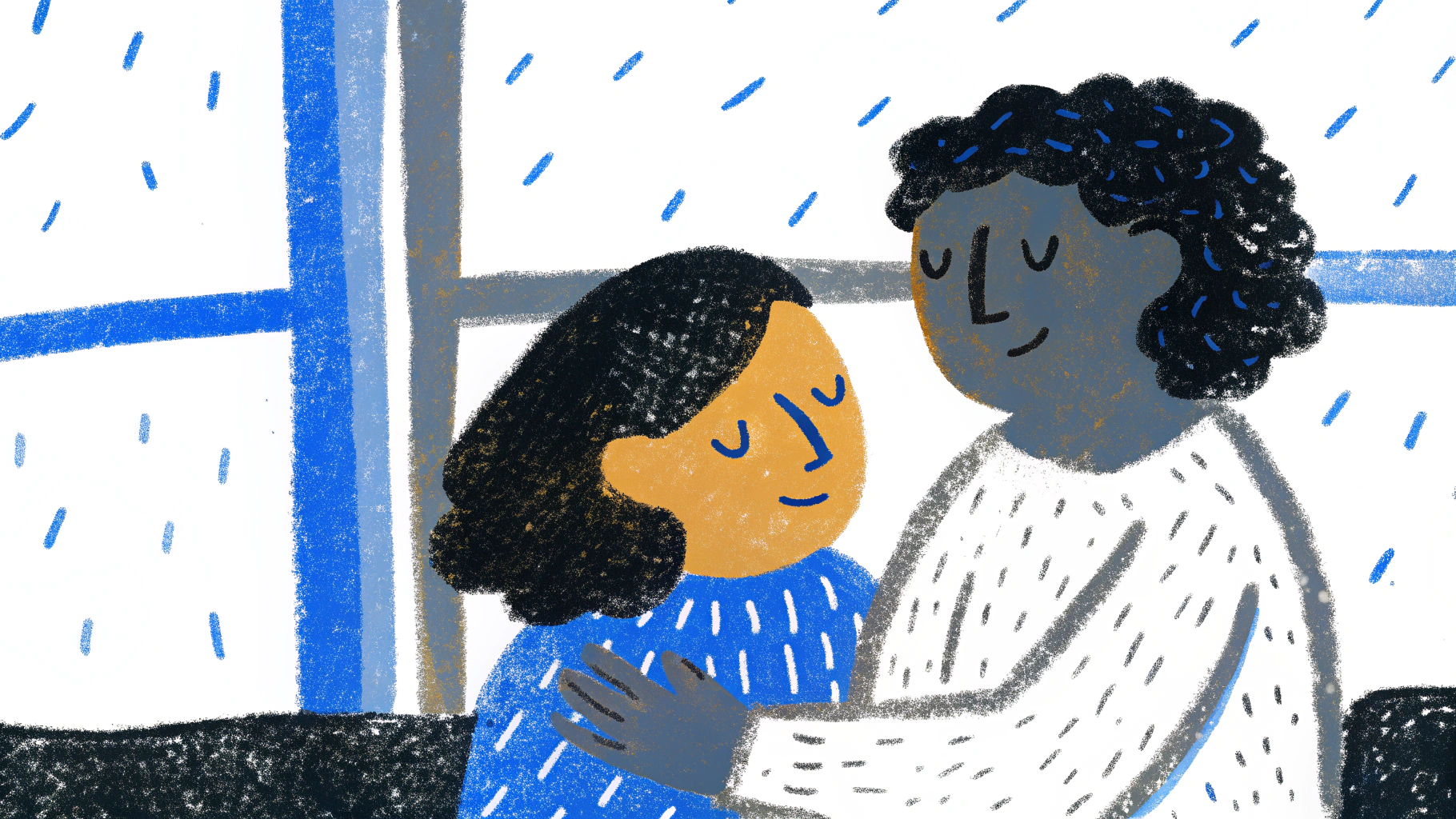
using technology in weird ways (that somehow work)
153. both set the same wallpaper temporarily:
find a photo you both love. both set it as phone background for a week.
you're seeing the same thing 100 times a day.
154. matching widgets showing each other's timezone:
world clock widget. their time. always visible.
constant reminder of their existence in a different place.
155. use find my friends (with consent, obviously):
sounds stalkerish. is actually comforting when done right.
you can see they got home safe without asking.you can see they're at work.you feel more connected to their physical movements in the world.
boundaries: discuss when it's okay to check. discuss when it's NOT okay to check. discuss not using it to monitor or control.
156. share screen time stats weekly:
laugh about how much time you both wasted on tiktok.compare app usage.shame each other lovingly.
157. send each other your spotify/apple music wrapped:
end of year stats. what you listened to. share all of it.
music taste = personality reveal.
158. have a shared notes app for literally everything:
one note for: things to do when you're together nextone note for: bucket listone note for: inside jokes explainedone note for: random thoughtsone note for: grocery list for when you live together (planning ahead)
shared notes = shared brain.
159. use couple apps but don't become dependent on them:
candle for daily prompts and games.between for messaging with special features.paired for questions.lasting for relationship growth.
try different ones. see what sticks. don't force it if it feels like homework.
160. set up automation for backup:
"good morning" text auto-sends if you forget.
doesn't replace real texts. but prevents accidentally forgetting and causing anxiety.
161. use apple watch/fitbit competitions:
compete on steps. active minutes. workouts.
winner gets bragging rights and loser has to [do embarrassing thing].
162. create a private discord server just for you two:
different channels:
memes (just for memes)
serious talk (for real conversations)
plans (for future planning)
photos (all your photos in one place)
random (everything else)
organized chaos.
163. pin your chat in every app:
their text conversation is pinned at top.their instagram DM is pinned.their whatsapp is pinned.
they're always at the top of your screen.
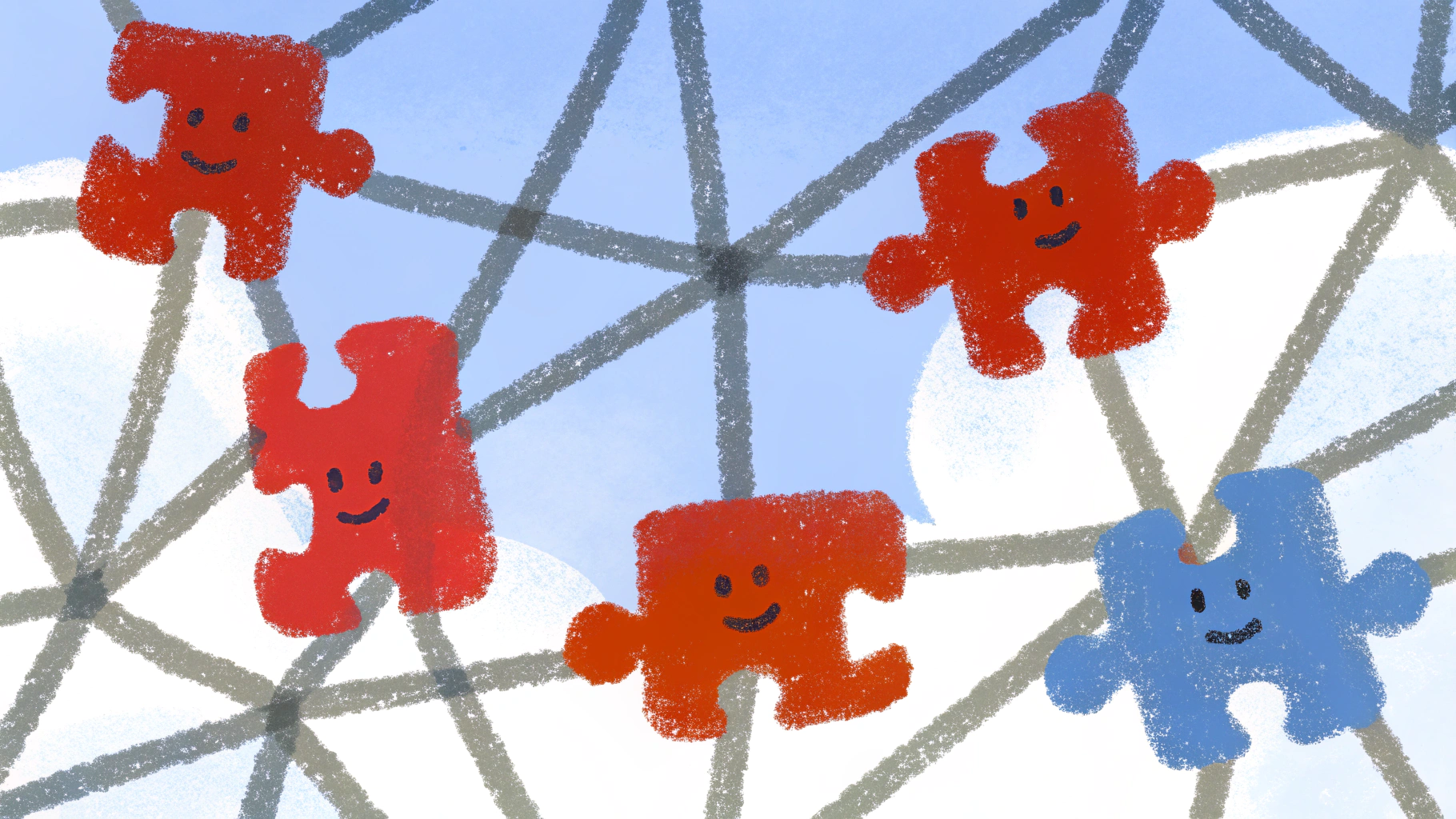
creating inside jokes intentionally (building your own language)
164. name inanimate objects after each other:
your plant is named after them. their car is named after you.
"how's [your name] doing?" "the plant? thriving."
165. create words that only you two understand:
turn random moments into words.
that time they spilled coffee becomes a verb. "i totally [coffee incident] today."
build your own language.
166. give each other increasingly ridiculous nicknames:
start normal. get progressively more absurd.
eventually you're calling them "bean" or "small tortoise" or something that makes no sense to anyone else.
use them sincerely. own it.
167. have a shared meme folder that requires inside joke context:
memes that are only funny to you two because of [incident] or [thing] or [reference].
your private comedy routine.
168. create traditions around completely random dates:
"march 17 is [thing] day because of [incident]""every third thursday we eat pizza and call it [name] night"
make up holidays. celebrate them seriously.
169. develop a shared fake language or accent:
use it ironically. then use it so much it becomes sincere.
you both sound ridiculous. it's perfect.
170. have a bit you commit to:
a running joke you maintain for months.
"we're actually penguins" and you both just go with it.
selling it completely. never breaking.
maintaining intimacy without touch (the hard part)
okay let's talk about the elephant: sexual/physical intimacy in long distance. you can't touch them. you can't kiss them. you can't have sex with them. that's really hard.
some couples handle this perfectly fine. some couples struggle intensely. both are valid.
here's how to maintain that connection when you can't be physical.
171. actually talk about sex openly:
what you miss. what you want. what you're looking forward to.
dirty texts? sure. but also just honest conversation about physical intimacy.
"i miss kissing you""i can't wait to [specific thing]""remember when we [thing]? i think about that a lot"
keeping that part of your relationship alive verbally.
172. flirt deliberately:
don't let flirting die just because you're together.
still compliment their appearance.still make suggestive comments.still show desire.
"you look really good in that" matters even over video.
173. send photos (if you're comfortable):
some couples do this. some don't. no pressure either way.
if you do: use encrypted apps. signal. telegram. NOT regular texts or easy-to-hack apps.
if you don't: that's totally fine. physical intimacy can wait until visits.
174. have explicit conversations about boundaries:
what are you comfortable with?what are you not comfortable with?what's off limits?what's enthusiastically yes?
consent and comfort apply to digital intimacy too.
175. video call intimacy (if that's your thing):
some couples do intimate video calls.some couples find it awkward.
if you try it and it feels weird, that's okay. you can laugh about it.if you try it and it works, great.
no pressure. no expectations. just exploration.
176. write them explicit messages (if that's your style):
detailed descriptions of what you want to do.fantasies.memories of physical times together.
for some people, written works better than visual.
177. create anticipation for reunion:
talk about what you'll do when you're together.make plans.build excitement.
"first thing i'm doing is [thing]""i can't wait to [thing]"
anticipation is its own kind of intimacy.
178. remember that physical intimacy isn't just sex:
hand holding. hugging. cuddling. kissing. sleeping next to them. all the touch you're missing.
talk about missing all of it, not just sex.
179. respect if one person needs this more than the other:
sex drives differ. need for physical intimacy differs.
communicate. compromise. be patient with each other.
180. use reunion time wisely:
when you're together, prioritize physical connection.
don't waste the whole visit on activities. make time for intimacy.
181. don't let outside opinions pressure you:
some people will ask "how do you deal with no sex?"
that's rude and none of their business.
"we make it work" and change subject.

random activities that are just good
182. watch the sunrise/sunset "together":
both go outside at the right time. video call. watch it together from different places.
183. get matching tattoos or piercings (if you're into that):
physical mark of the relationship. permanent reminder.
184. create a private podcast just for each other:
record episodes about random topics. send them. they listen on their commute.
185. write a story about your relationship:
fictionalize it. exaggerate. make yourselves heroes. make it ridiculous.
186. make a couple spotify account:
different from individual playlists. shared account. shared history.
187. start a garden "together":
both plant the same seeds. both care for your plants. update each other on growth.
188. do the same workout program:
follow same youtube channel. do same exercises. compare progress.
189. take the same online class:
learn together. discuss lessons. do homework together.
190. track your relationship in a shared spreadsheet (if you're nerds):
dates visited. money spent. activities done. movies watched.
data = memories documented.
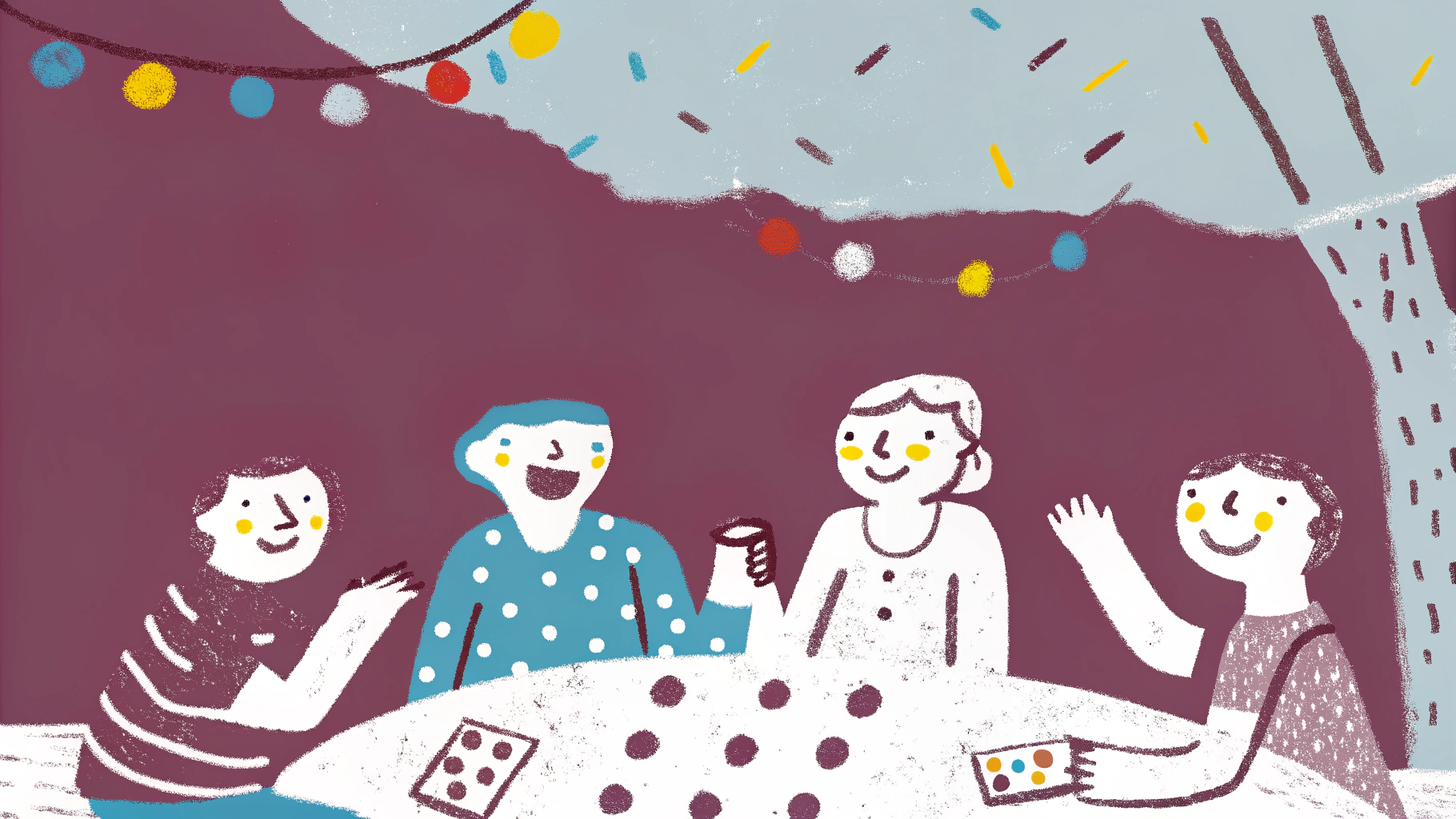
part 9: when you finally see each other (the reunion survival guide)
reunions are what you've been waiting for. but they're also weirdly stressful. you built this moment up in your head. what if it's awkward? what if the chemistry isn't the same? what if you've both changed? what if you run out of things to do? what if you fight? what if the goodbye is too hard?
all of that is normal. here's how to handle every phase.
before the reunion (building anticipation without pressure)
139. lock in dates as early as possible:
book flights/trains/whatever as soon as you can. having concrete dates makes it real.
put it on both your calendars. count down. let the anticipation build.
140. have the "what do we want from this visit" conversation:
different visits can have different vibes. talk about what this one should be.
relaxation visit? you're both exhausted and need to just exist together quietly.
adventure visit? packed schedule, see everything, make memories.
sex-focused visit? honestly just planning to stay in bed a lot. valid.
friend/family visit? spending time with your people, them meeting your world.
get aligned so nobody's disappointed.
141. plan some activities but leave breathing room:
overscheduling kills visits. you need unstructured time.
have 2-3 "anchor" activities. dinner reservations. concert tickets. day trip somewhere. but leave huge blocks of nothing.
spontaneity matters. so does just being together without agenda.
142. don't overplan the sex:
if you're planning to have sex (you probably are), don't script it.
"we'll have sex exactly at 8pm on day one" creates pressure.
better: "we'll figure it out naturally." takes pressure off.
143. manage your own expectations:
the first few hours might be weird. that's normal.
they might look slightly different than you remember. that's normal.
you might feel nervous. that's normal.
it won't be exactly like last time. you've both changed slightly. that's okay.
144. prepare your space if they're staying with you:
clean your apartment. change the sheets. make space in your closet for their stuff. stock the fridge with things they like.
small effort, big impact. shows you prepared for them.
145. plan your reunion outfit:
wear something that makes you feel confident. doesn't have to be fancy. just something that makes you feel good.
they've been staring at you through screens. remind them why they love you in person.
146. have a "first thing" ritual:
what's the first thing you'll do when you see each other?
some couples always go to the same restaurant.some couples always go straight home and don't leave for hours.some couples have a specific place they meet.
having a ritual reduces decision paralysis and makes reunions feel special.
147. plan one surprise for them:
something they don't know about. tickets to something they mentioned. their favorite food waiting. plans with their friend who lives nearby.
one surprise makes the whole visit more exciting.
148. communicate about physical intimacy expectations:
especially if it's been a long time or you're still newish.
"i'm nervous about [thing]""i really want [thing]""let's not pressure ourselves about [thing]"
talking about it reduces performance anxiety.

during the visit (being present and handling reality)
149. the first hour will probably be weird:
you've been digital for weeks/months. physical presence feels different.
you might not know what to say. you might be shy. you might feel awkward hugging them.
this is completely normal. it passes.
push through it. hug them. kiss them. touch them. remember what physical closeness feels like.
usually within an hour, you'll settle into each other.
150. take things slow if needed:
if you're feeling overwhelmed or overstimulated, say so.
"i need a minute to adjust" is valid.
"can we just sit together for a bit before we do stuff" is valid.
don't feel pressure to immediately be "on."
151. do boring domestic stuff together:
grocery shopping. cooking. doing laundry. cleaning up. running errands.
these mundane activities are what you actually miss. the everyday partnership stuff.
make a whole afternoon out of grocery shopping. it sounds ridiculous but it's intimate.

152. stay off your phones (mostly):
you have limited time together. be present.
obviously take photos. obviously check important messages. but don't scroll instagram while sitting next to them.
this is the time you've been waiting for. don't waste it on screens.
153. talk about real stuff, not just logistics:
it's easy to fall into "what should we eat" "what should we do" "what time is it" loops.
have actual conversations. about feelings. about the relationship. about life. about everything you can't fully express over text.
154. fight if you need to fight:
if something's bothering you, address it while you're together.
being in person makes conflict resolution easier. you can read body language. you can hug after. you can't ghost.
don't save up grievances for after they leave.
155. take tons of photos and videos:
you'll want proof this happened when you're apart again.
not just posed couple photos. candid moments. videos of them laughing. photos of your food. random snippets of your time together.
156. have sex (or don't, but probably do):
physical intimacy after distance hits different.
take your time. don't rush. be present.
it might be awkward at first. bodies need to remember each other. that's normal.
communicate. "slower" "different angle" "i like that" "keep doing that."
157. try something new together:
do one thing you've never done before. new restaurant. new activity. new place.
creates a memory that's specific to this visit. when you remember this trip, you'll remember "that's when we [new thing]."
158. introduce them to your people (if appropriate):
your friends. your family. your favorite bartender. whoever matters in your world.
make them part of your real life, not just your phone life.
159. have real talks about the future:
you're together. you're in the same physical space. use this time to discuss hard stuff.
timeline for closing distance. relationship goals. concerns you have. plans you're making.
these conversations are easier face to face.
160. don't fight about stupid stuff because time is limited:
"you loaded the dishwasher wrong" doesn't matter when you only have 3 days together.
pick your battles. let small annoyances go. focus on what matters.
161. build in rest time:
you don't have to be doing something every moment.
nap together. lie in bed and talk. watch a stupid show. just exist in the same space.
presence > activity.
162. don't live on social media during the visit:
post a couple photos if you want. but don't spend the whole visit performing for instagram.
nobody needs a story for every meal. just be together.
the last day (goodbye strategies that don't destroy you)
163. don't spend the last day crying (save it for after):
the last day should be good. make it good.
yes, you're sad. yes, goodbye is coming. but you're still together RIGHT NOW.
make the most of the time you have left.
164. have a last day ritual:
something you do every visit before parting.
same restaurant. same walk. same activity. same conversation.
makes goodbyes feel less random and more like a purposeful ending to the visit.
165. exchange something physical:
your hoodie for theirs. a handwritten note. a small object. something they can hold.
physical object = physical reminder you were together.
166. don't leave the airport/station without next visit locked in:
before you say goodbye, confirm when you'll see each other again.
"we'll do this again in X weeks" makes goodbye slightly less devastating.
knowing when you'll reunite makes the separation bearable.
167. long goodbye vs short goodbye (know your style):
some people need to drag out goodbyes. long hug. multiple "i love yous." watching them go.
some people need to rip the bandaid. quick hug. "text me when you land." walk away fast.
know which you are. communicate which they are. respect both styles.

168. airport goodbye strategies:
don't go to the gate (you can't anyway in most airports).
say goodbye at security or outside terminal. cry in the car, not in the TSA line.
or: sit with them until they have to go through security. squeeze every last minute.
either way is valid.
169. record a voice note or video right after separating:
before you've left the airport. while the feeling is fresh.
"i miss you already. this week was perfect. counting down until [next visit]."
they listen to it later when they're sad.
after the reunion (surviving the crash)
170. expect to feel absolutely terrible for a few days:
the post-reunion crash is REAL. worse than before they arrived.
you just remembered what being together feels like. now you're apart again. it's devastating.
day 1-3 after separation are usually the worst. that's normal.
171. send the "i miss you already" text immediately:
as soon as you separate. as soon as you're in your uber or on your way home.
"already miss you. thank you for this week. you're incredible."
they're feeling it too. reassure each other.
172. resist the urge to pick fights:
sometimes people fight right after reunions. it's a weird coping mechanism.
"actually i'm mad about [thing from 3 days ago]" = "i'm devastated we're apart and i don't know how to process this."
if you feel anger bubbling up, pause. is it actually about them? or are you just sad?
173. share photos and videos from the visit:
relive it together. reminisce.
"remember when we [thing]" "look how happy we look here" "this was my favorite moment"
keeping the visit alive helps soften the return to distance.
174. don't expect to immediately resume normal routine:
the first few days back, you're adjusting. your brain is recalibrating.
texts might feel hollow compared to having been together. calls might feel insufficient.
that's normal. give it a few days. you'll find your rhythm again.

175. process the visit honestly:
was it what you hoped? what was good? what would you do differently?
if something felt off, talk about it. don't let it fester.
"i felt like we fought a lot" or "i loved every minute" or "next time let's plan less activities" or whatever.
176. use the visit as motivation:
"that was amazing. X more weeks until we do it again."
the visit proves this is worth it. you're not just surviving distance. you're building something real.
177. update your countdown:
start counting down to the next visit immediately.
visual reminder that this isn't forever. you'll see each other again soon.
178. be gentle with yourself:
you're allowed to be sad. you're allowed to cry. you're allowed to feel terrible.
distance after reunion feels worse than regular distance. because you know exactly what you're missing.
give yourself permission to grieve the goodbye.
179. but also get back to your life:
see your friends. go to work. do your hobbies.
don't wallow for weeks. after 3-4 days of feeling terrible, intentionally start rebuilding your life.
the visit was a beautiful parenthesis. but your life is still happening.
180. plan the next visit immediately (if possible):
if you didn't lock in dates before goodbye, do it within the week.
having the next thing on the calendar makes everything easier.
part 10: the real secret (synthesis)
here's the thing that most long distance relationship advice misses:
the activities matter less than the consistency.
you can do every single thing on this list and still drift apart if you're not showing up daily.
you can also do just five things from this list consistently and feel deeply connected.
the magic isn't in the specific activity. it's in the pattern of showing up.
it's in the proof that you're thinking about them. choosing them. making effort even when it's not convenient. showing up when it would be easier not to.
some truths about long distance that actually matter:
→ it's not just about surviving until you're together. you have to actually live your relationship NOW, not wait for it to start when distance ends. too many couples put life on pause waiting for distance to be over. but that's months or years of your relationship you're just... not having. live it now.
→ the absence of physical touch forces you to communicate better than most couples ever learn to. that's actually valuable. couples who live together can coast on proximity. you can't. you have to be intentional. that skill is rare and precious.
→ you learn what really matters in a relationship when proximity isn't doing the heavy lifting. turns out it's not about being in the same room. it's about feeling seen. heard. chosen. prioritized. you can have all of that across distance if you build it right.
→ forcing yourself to be intentional about connection is a skill that will serve you forever, even after distance ends. most couples stop dating each other after they move in together. you won't, because you've built muscles around creating connection that other couples never develop.
→ not every day will feel connected. that's fine. consistency over intensity. you're building a relationship, not performing one.
the core philosophy here:
your relationship needs emotional momentum. tiny, consistent actions that build into feeling close.
one minute a day actually matters more than one hour a week if the minute happens every day.
this is why apps like candle work for so many people. the whole design is based on this principle: tiny daily doses of connection add up to feeling close. you're not trying to have a perfect hour-long date every day. you're answering one question. sharing one photo. playing one quick game. doing one small thing together. it takes a minute. but you do it every day.
that consistency creates emotional momentum. each day builds on the last. each moment of connection makes the next one easier. you're not starting from zero every time you talk. you're continuing something ongoing.
create rituals. answer prompts. share photos. play stupid games. do something together daily.
the specific thing matters less than the habit of connection.

warning signs your activities aren't working:
you're doing them out of obligation, not desire
they feel like chores on a checklist
you resent the effort
you'd rather do them with someone else
you're only doing them because "relationships take work"
you feel relief when they cancel instead of disappointment
you're constantly thinking about how much easier this would be with someone local
if that's happening, the problem might not be the activities. might be the relationship.
how to choose what to try from this list:
don't try everything. that's insane and will burn you out immediately.
pick:
3-5 daily micro-habits that actually fit your lifestyle
1-2 weekly scheduled things that you both genuinely enjoy
1 ongoing project that excites you
random thoughtful gestures when genuinely inspired
that's it. consistency beats variety.
start small. build up. drop what doesn't work. double down on what does.
customization matters more than you think:
if you hate video games, don't force it. if you're not creative, don't make art together. if you're not readers, skip the book club.
pick things that match who you actually are, not who you think couples "should" be.
the Instagram-perfect LDR couple who does elaborate themed date nights every week? they might be miserable. or they might genuinely love that. doesn't matter. you're not them.
do what makes YOU feel connected. what makes YOUR person smile. what fits YOUR schedules and energy levels and personalities.
the hardest truth nobody wants to hear:
sometimes you do everything right and it still doesn't work.
distance reveals whether a relationship has a foundation strong enough to sustain itself without proximity.
if you're doing all this stuff consistently and still feeling disconnected, that's information.
maybe the relationship isn't right. maybe the timing isn't right. maybe you're not right for each other in this format. maybe one of you needs physical presence in a way the other doesn't. maybe the distance is revealing incompatibilities that proximity was hiding.
and that's okay. painful, but okay. better to learn it now than after you've uprooted your life to move.
but if you're reading this and nodding and thinking "yeah i want to try this stuff":
if you're excited about the possibilities here. if you're already mentally planning which activities to try first. if you're thinking "we could totally do that thing."
then you probably have something worth fighting for.
so fight for it.
show up. every day. even when it's hard. especially when it's hard.
be creative. find new ways to feel close. don't settle for the same boring routine.
be consistent. reliability builds security. security builds trust. trust builds intimacy.
be intentional. every action signals something. make sure you're signaling "you matter to me."
be present in the ways that matter. not just physically available. actually there. actually listening. actually caring.
and remember: you're not just surviving distance. you're building a relationship strong enough that distance doesn't kill it.
that's actually kind of beautiful.
most couples never have to prove their relationship can survive hard things. you're doing it right now. that takes courage. takes commitment. takes creativity.
and if you make it through this? you'll have something most couples don't: absolute certainty that you chose each other on purpose. not because it was convenient. not because they were just there. because you actively, daily, chose this person across miles and time zones and all the obstacles.
that's real. that matters.

where to start (if you're overwhelmed)
okay that was a lot. like 175+ specific things. obviously don't do all of them.
here's a simple starter pack:
do these 5 things this week:
send a voice note instead of a text today
pick one day for a video date night and actually plan something
start a shared spotify playlist
ask one specific question instead of "how was your day"
send them something (photo, meme, whatever) that made you think of them
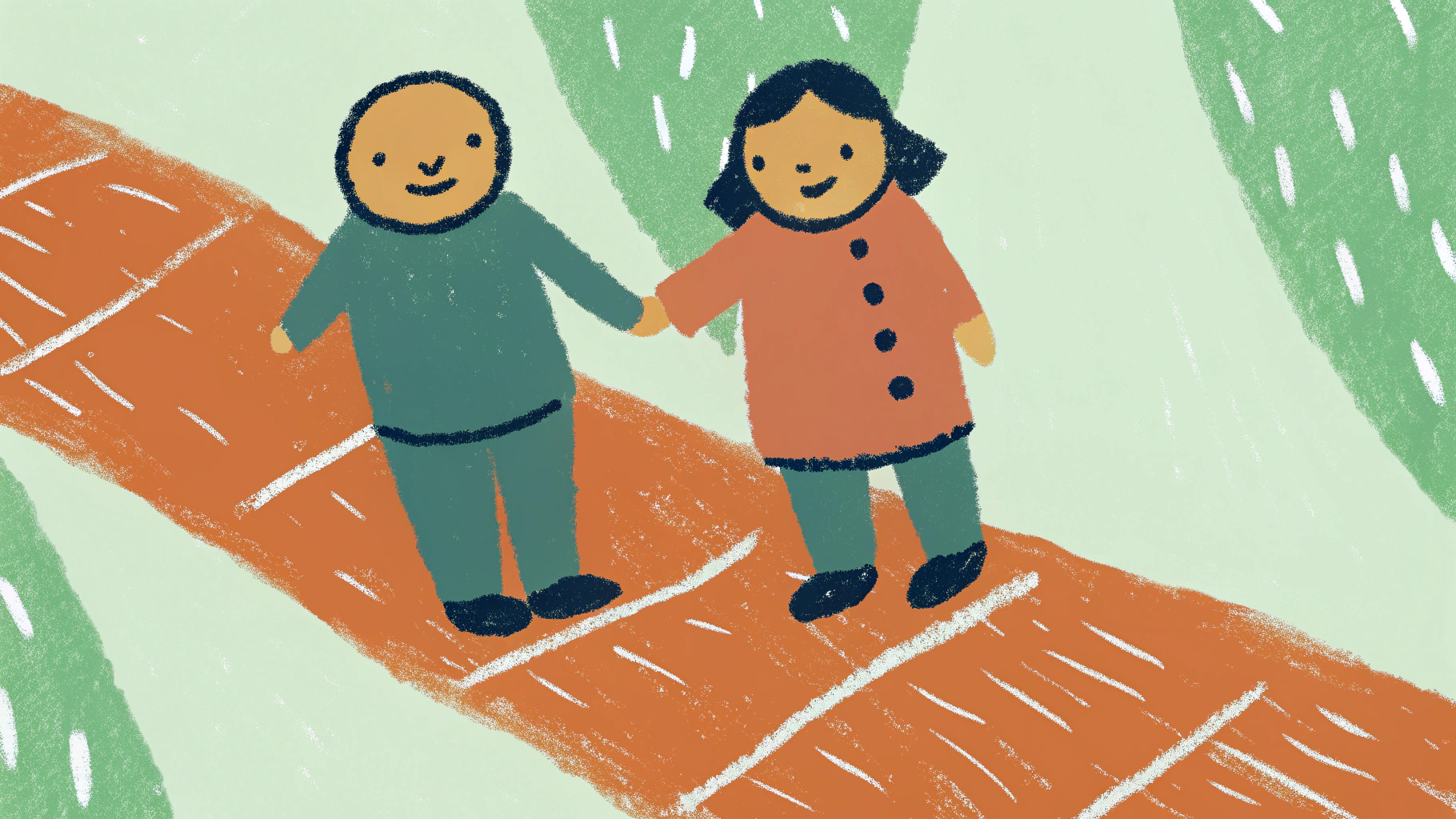
then next week add:
try one new activity from this list
establish one daily ritual (morning text, evening call, whatever)
then keep building.
add stuff that works. drop stuff that doesn't.
find your rhythm.
tools that might help:
candle for daily prompts and challenges (seriously this one's designed specifically for this)
teleparty for watching stuff together
marco polo for async video messages
spotify for music sharing
google docs for shared journals
literally whatever works for you
remember:
the point isn't to make long distance feel exactly like being together.
the point is to make long distance feel like something instead of nothing.
to create connection instead of just maintaining contact.
to build something instead of just waiting for distance to end.
you can do this.
it won't always feel good. but it can work.
and honestly? couples who survive long distance often end up stronger than couples who never had to figure this stuff out.
so yeah. good luck.
stay consistent.
keep showing up.
and text your person something that'll make them smile right now.
they're probably missing you too.